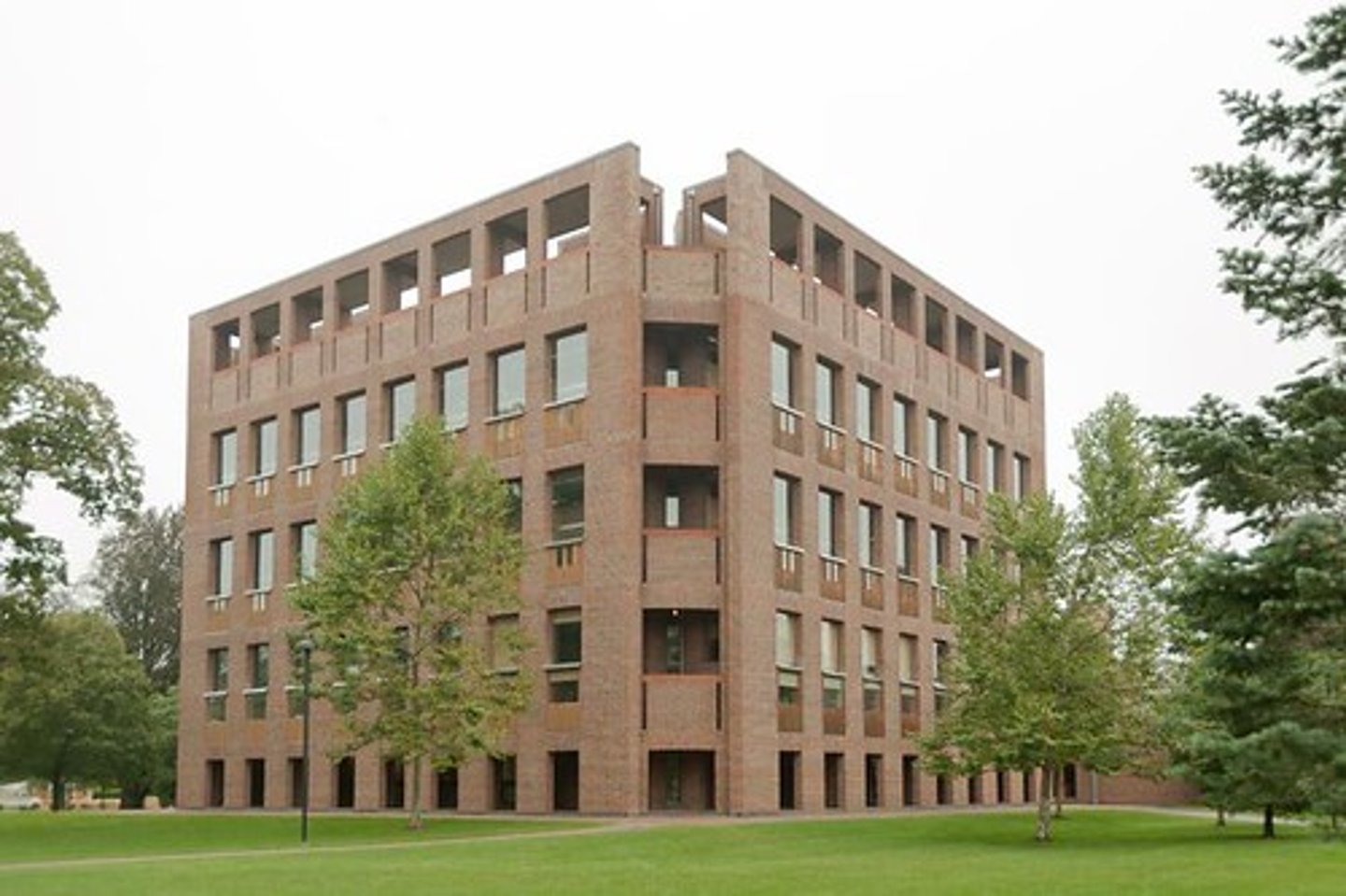briar jones architecture appreciation exam 3
1/103
There's no tags or description
Looks like no tags are added yet.
Name | Mastery | Learn | Test | Matching | Spaced | Call with Kai |
|---|
No analytics yet
Send a link to your students to track their progress
104 Terms
architecture that uses mathematics, rational proportions, universal order
symmetry
grounded to earth
uses human reason
circle and square pure form
rebirth of classical
renaissance architecture
architecture that is ahistorical asymmetrical
architecture in service to God
governed by specific context
gothic architecture
the authentic re-use of classicism based in understanding of perspective, changed size, and proportions of pediments and columns
represents human intellect as much as power of God
the activity, spirit, or time of the great revival of art, literature, and learning in Europe beginning in the 14th century and extending to the 17th century, marking the transition from the medieval to the modern world.
Renaissance period
where did the renaissance begin
Florence, Italy
philosophical system based upon capacity of humankind for rational, objective thought and action
stresses human reason and centered in human nature, interests and ideals as distinct from religious philosophies based in a higher God
human achievement separated from religious dogma
wanted excellence in human achievement
wanted to reconcile classical view of human potential with christian belief in divine intervention
humanism
Renaissance Man who was an architect, painter, and sculptor
Brunelleschi
various adaptations of Italian renaissance architecture that occurred in Europe until the advent of mannerism and baroque in the 16th and 17th centuries characterized by use of Italian Renaissance forms and motifs in more or less traditional buildings
renaissance architecture
building where the dome is witness to human achievement
employed ribs and double shells
cathedral of florence
picture of cathedral of florence
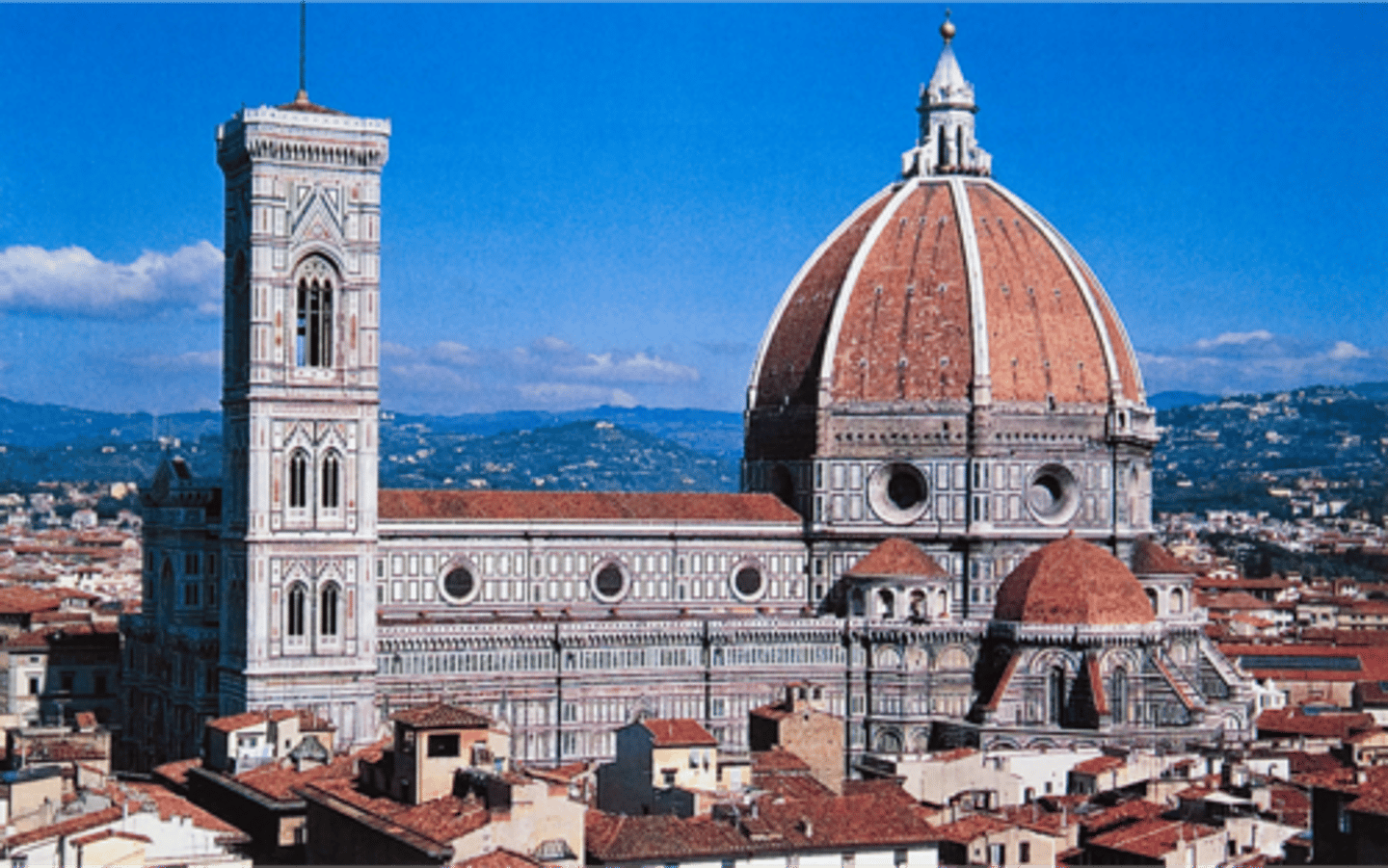
style of Italian renaissance art and architecture developed in 15th century characterized by development of linear perspective, chiaroscuro and in buildings by free and inventive use of classical details
early renaissance
style of painting using only light and shadow
chiaroscuro
brunelleschis first renaissance building
florence, italy 1422
symmetrical forms
proportions relate one element to another
application of scientific purpose
The Foundling Hospital(orphanage)
largest dome built since the romans
technical achievement in construction
renaissance dome
no "centering" built to be self supporting as it was constructed
1418-1436
The Duomo(Dome of Cathedral in Florence)
built by Filippo Brunelleschi
Medici hired Brunelleschi to rebuild this
church of san lorenzo
picture of church of san lorenzo
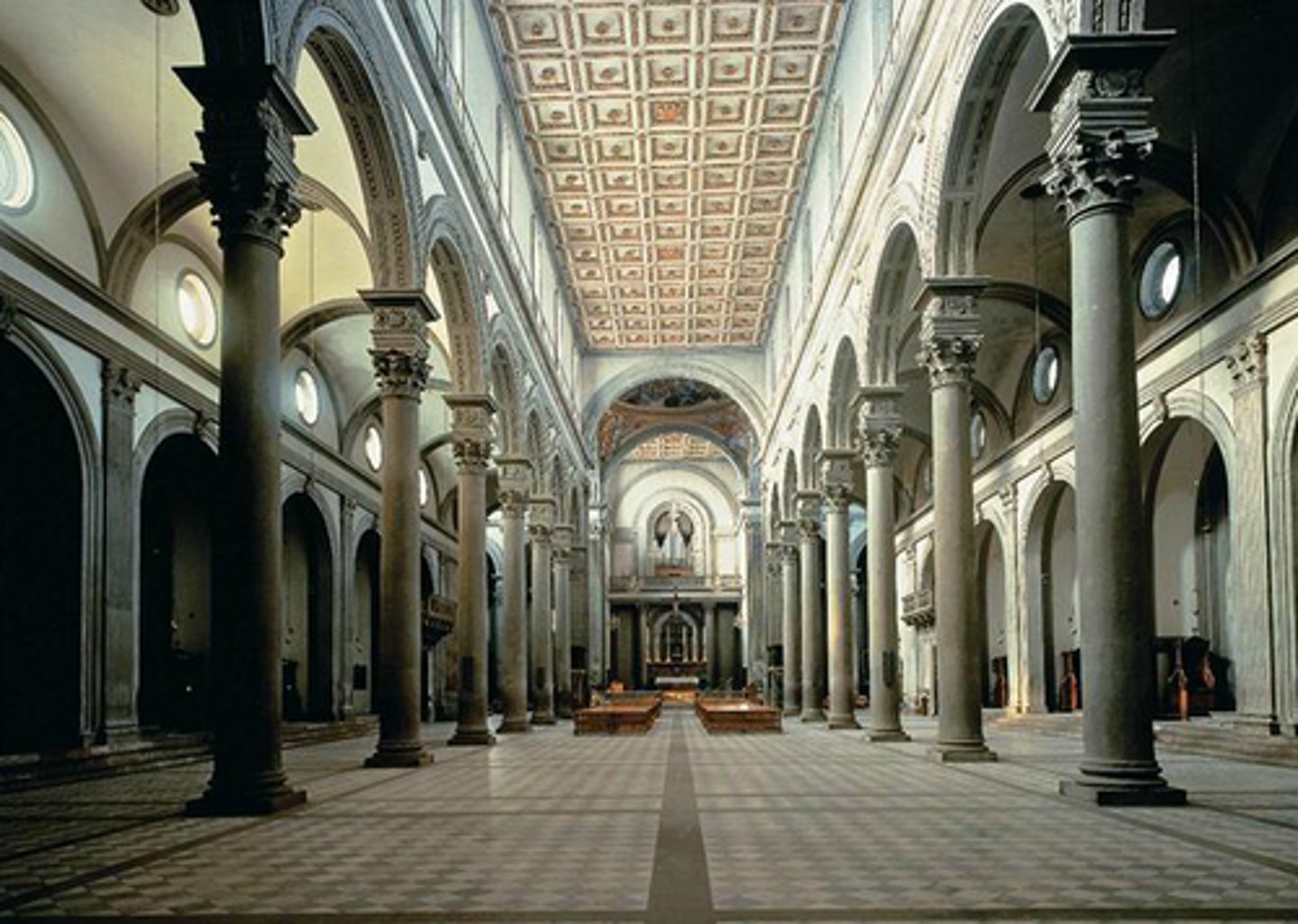
built by Filippo brunelleschi
proportions and style fully realized
volumes were cubes
constructed perspective
church of S Spirito
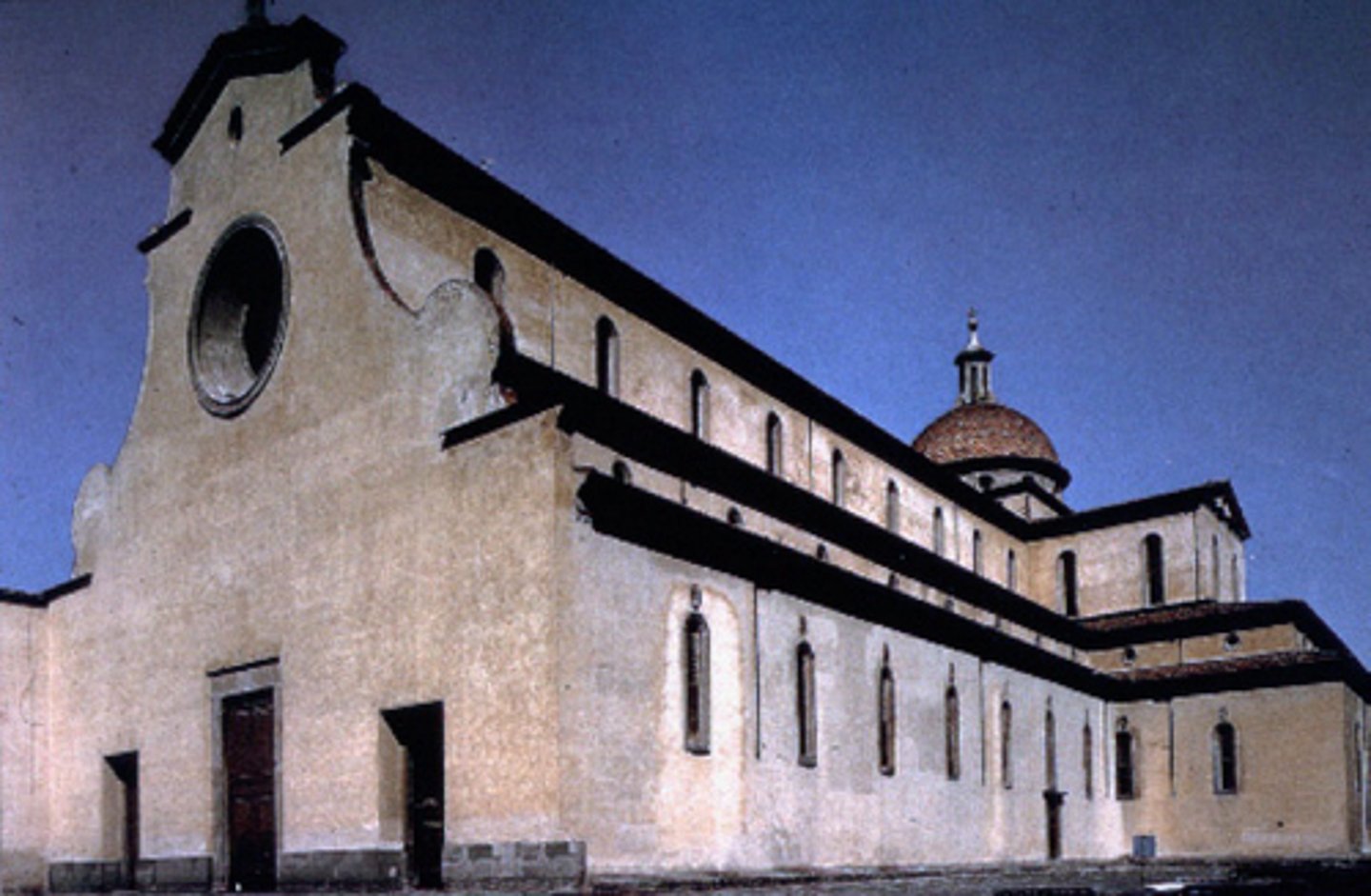
picture of pazzi chapel
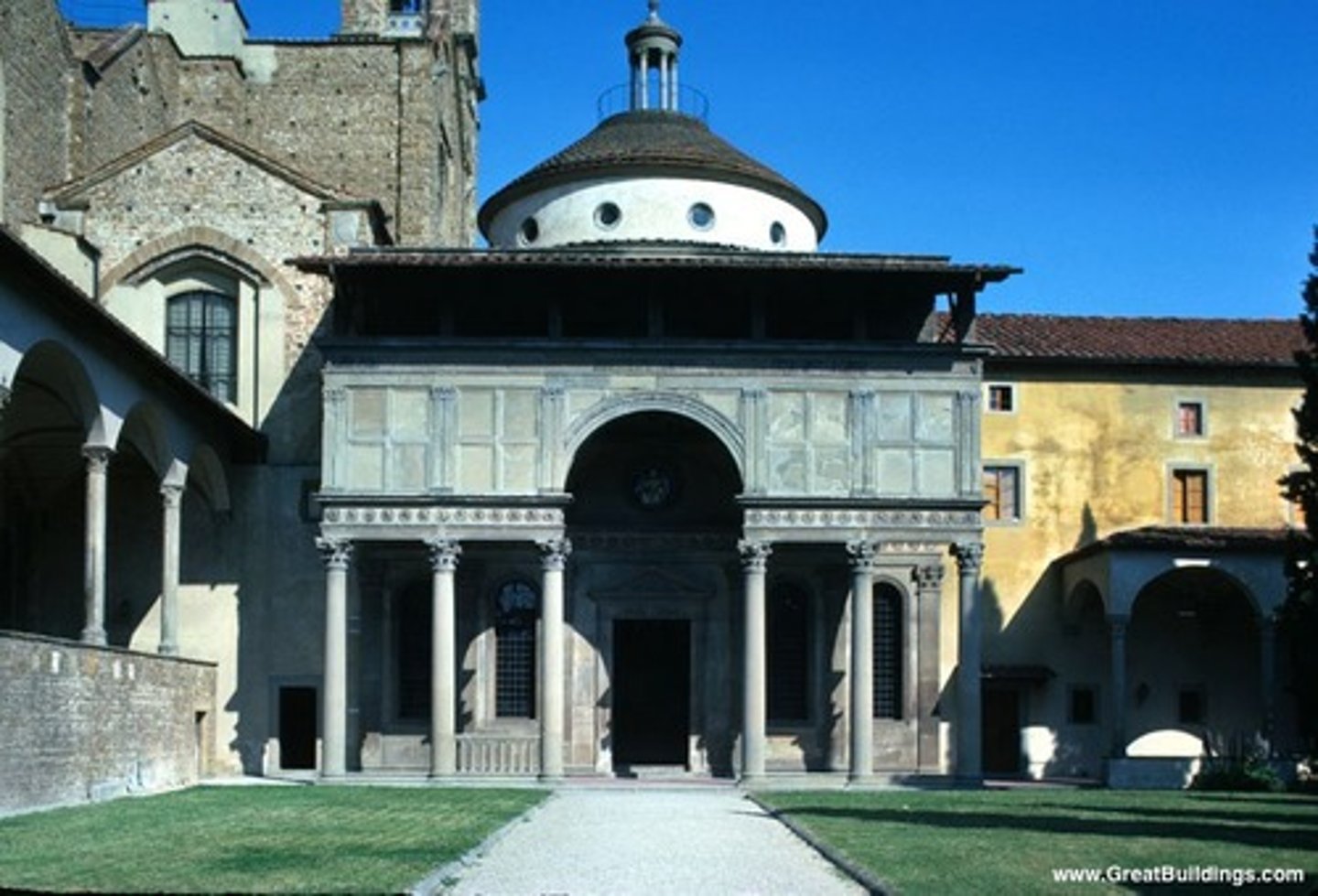
wrote "bible" for renaissance architecture
roman architect and theorist
vitruvius
theorist, historian, architect and scientist
10 books on architecture modeled after vitruvius
promotes architecture as intellectual activity
Leon Battista Alberti
what is the center of humanism
man
1500 Vicenza Italy
designed by Andrea palladio
supreme example of theoretically inspired design
completely symmetrical
elements all governed by proportional relationships
turned house into temple
Villa Rotunda
who wrote the treatise of architecture-the 4 books of architecture
Andrea Palladio
term for city house
palazzo
the public face to the town of venice
San Giorgio Maggiore
public square
piazza
style of Italian renaissance art and architecture developed in late 15th century, emphasis on draftsmanship, illusion of sculptural volume in painting and building by imitative use of orders and compositional arrangements in classical styles with great attention to formulation of compositional rules after precepts of Vitruvius and precedents of existing ruins
high renaissance
designed the Tempietto of San Pietro in Rome
1444-1514
close to Leonardo da vinci
did early work in Milan
moved to Rome after French sack of Milan in 1499
Donato Bramante
circle and square represent perfection of divinity
believe saint Peter was killed/martyred here
meant to be object, picture and marker
Tempietto of San Pietro
picture of Tempietto of San Pietro
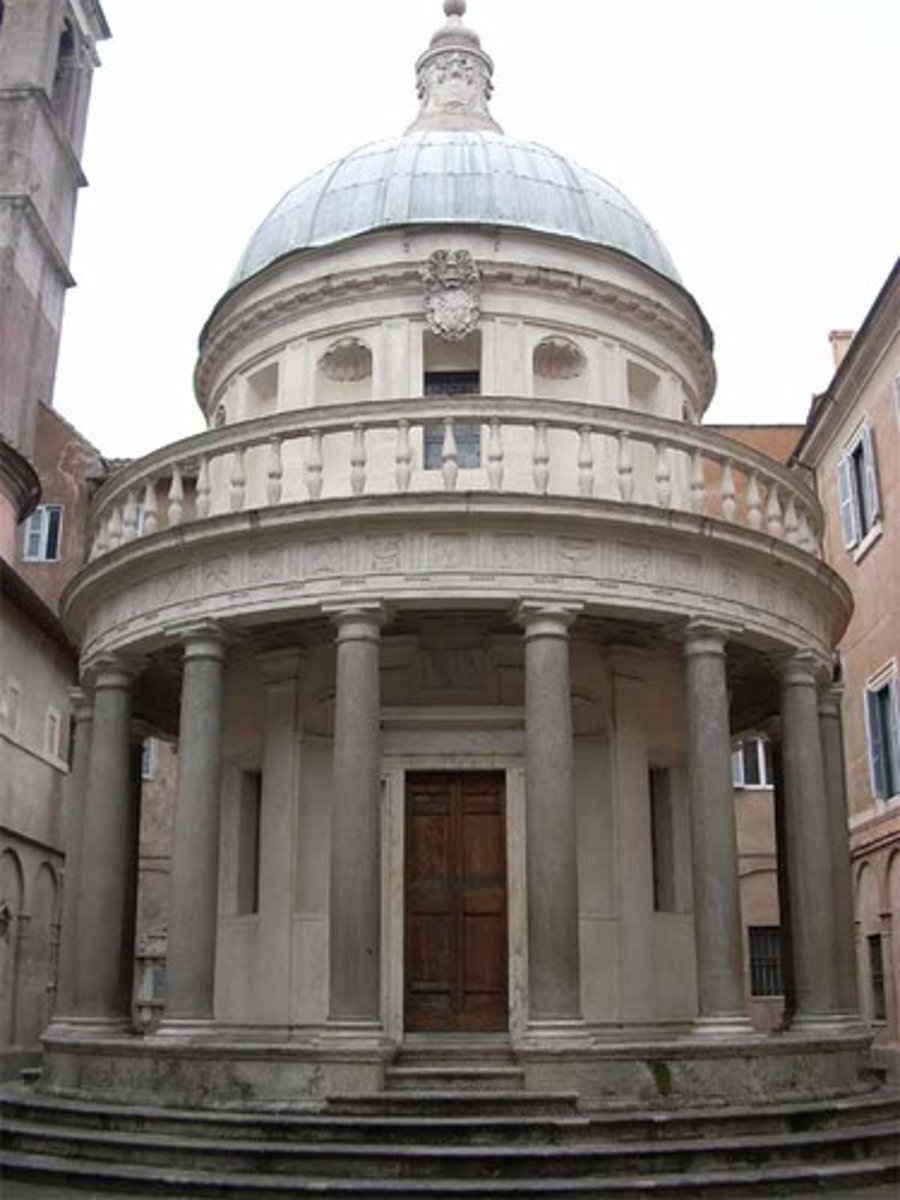
this person introduced humanist ideals to Papal court
made Rome the Queen City-consolidated temporal power
return to glory from roman antiquity
1503
Pope Julius II
Magnificent new church over the crypt of St Peter
Michelangelo changed it
known as the dome of all domes-becomes icon for dome often repeated
bramantes scheme was on scale grander than any roman structure
Saint Peter's Cathedral
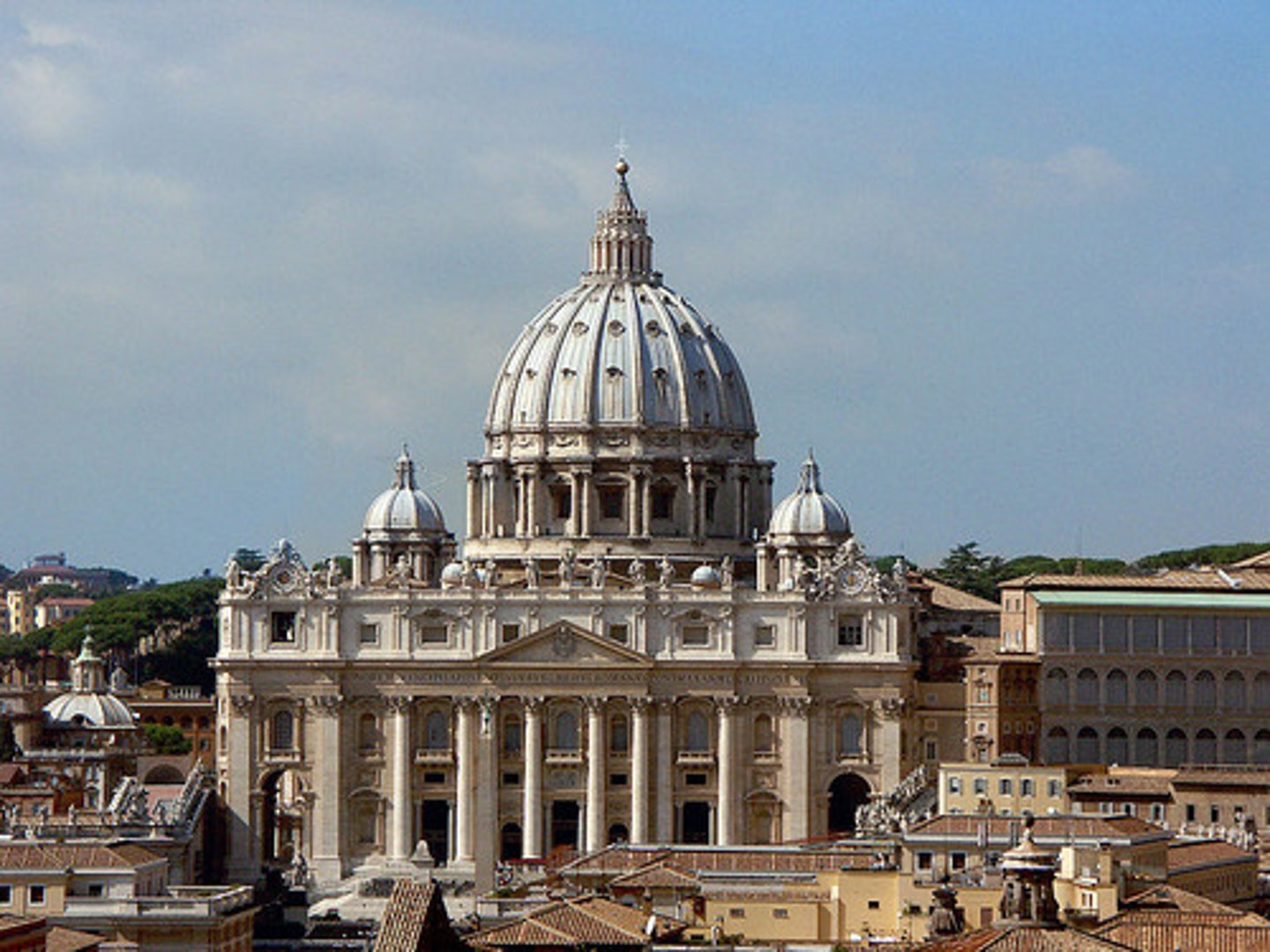
inventive combinations of elements that purposefully play with classical rules
proportions are exaggerated
transitional style in European architecture in late 16th century esp in Italy characterized by unconventional use of classical elements
mannerism(high renaissance)
1475-1564
rebelled against renaissance decorum
painter(ceiling of sistine chapel), sculptor(David the pieta) and laurentian library
Michelangelo
complete challenge to renaissance rules of order, proportion and use of historic elements
goal was to heighten physical experience of moving through space
1524 manipulated classical architecture as elements in gigantic structure
Laurentian Library
1536 Michelangelo built it
organization deviates from purity of renaissance geometry
subtle tension of angled plan and oval plaza
ideas beginning to become mannerism
"campidoglio" Capitoline Hill
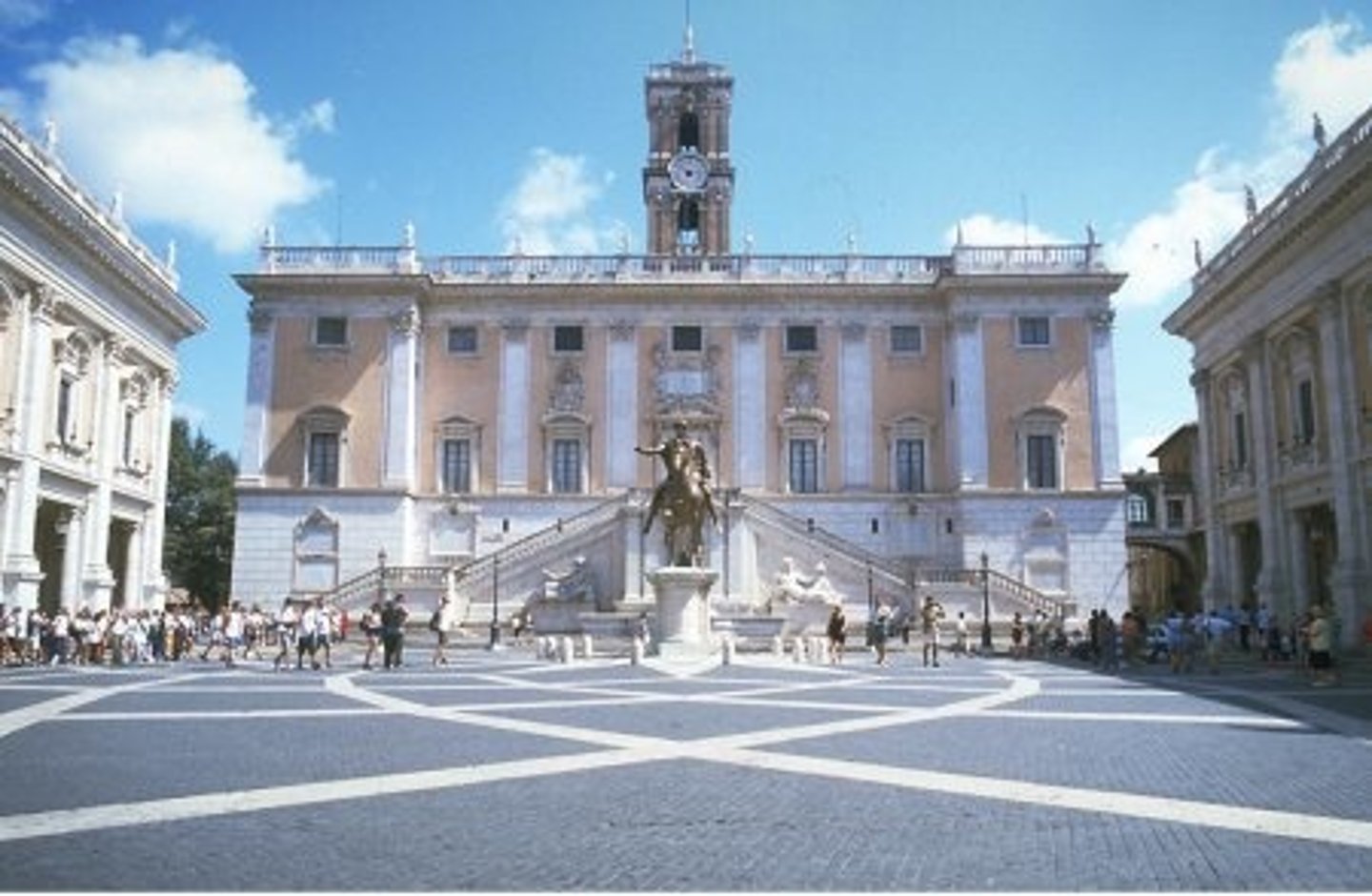
built queens house in greenwich england
1572-1652
also built Banqueting Hall in Whitehall London
1619-1622
Indigo Jones
a railing supported by balusters, especially an ornamental parapet on a balcony, bridge, or terrace.
balustrade
Banqueting Hall, Whitehall Palace
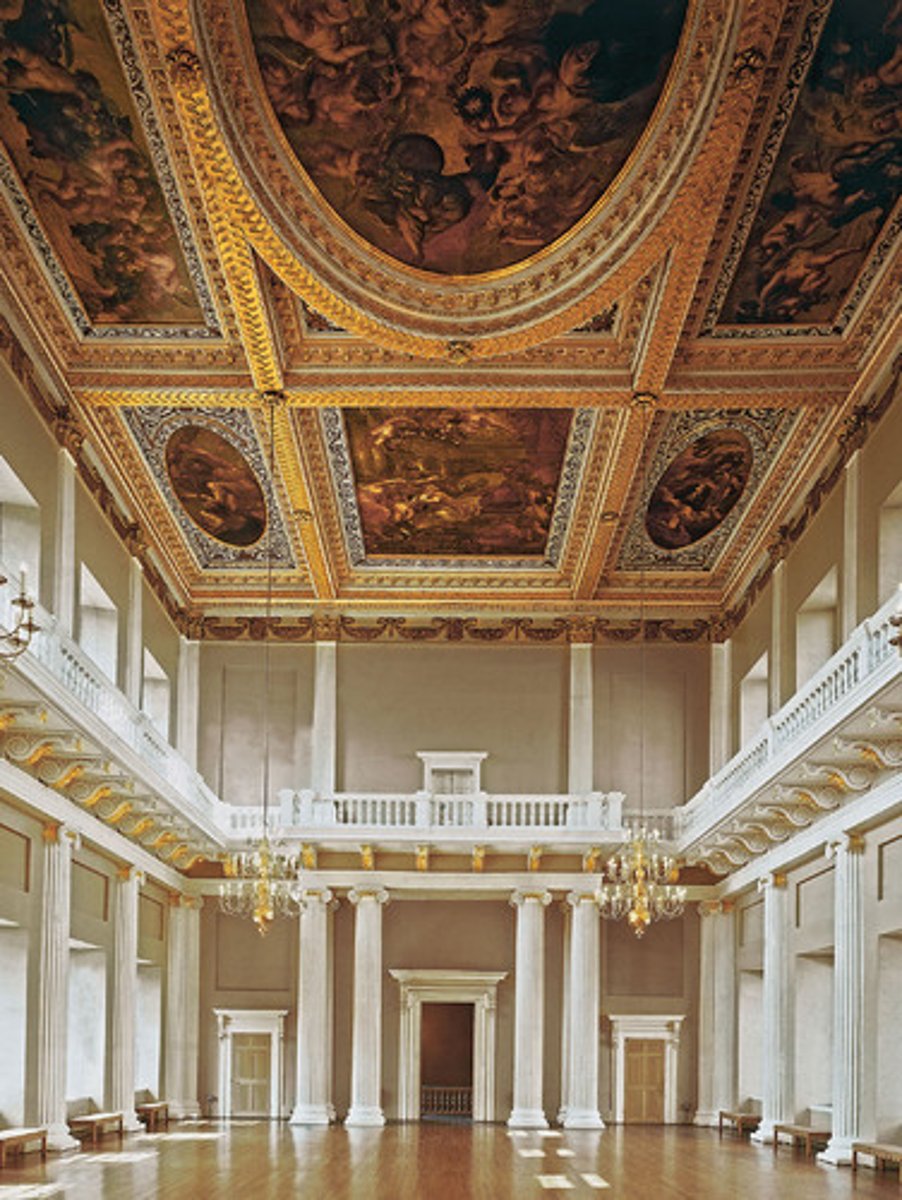
style of architecture that engages pure form and intellect
emphasizes individual in isolation
architecture for wealthy
individual isolated buildings
renaissance architecture
architecture that engages emotions and illusionary effects
emphasizes individual in society
architecture for all social classes
buildings fit context
Baroque
style of architecture originating in Italy in 17th century and variously prevalent in Europe and New World for a century and a half characterized by free and sculptural use of classical orders and ornament, dynamic opposition and interpretation of spaces and dramatic combined effects of architecture, sculpture, painting and decorative arts
Baroque architecture
2 famous architects in Baroque period
building to awe and convert
counter reformation-reintroduce spiritual values
something greater than individual
reaffirmation of Catholic Church after protestant reformation
Gianlorenzo Bernini and Francesco Borromini
dates back to the roman circus
1644
designed by Bernini and Borromini
Piazza Navona
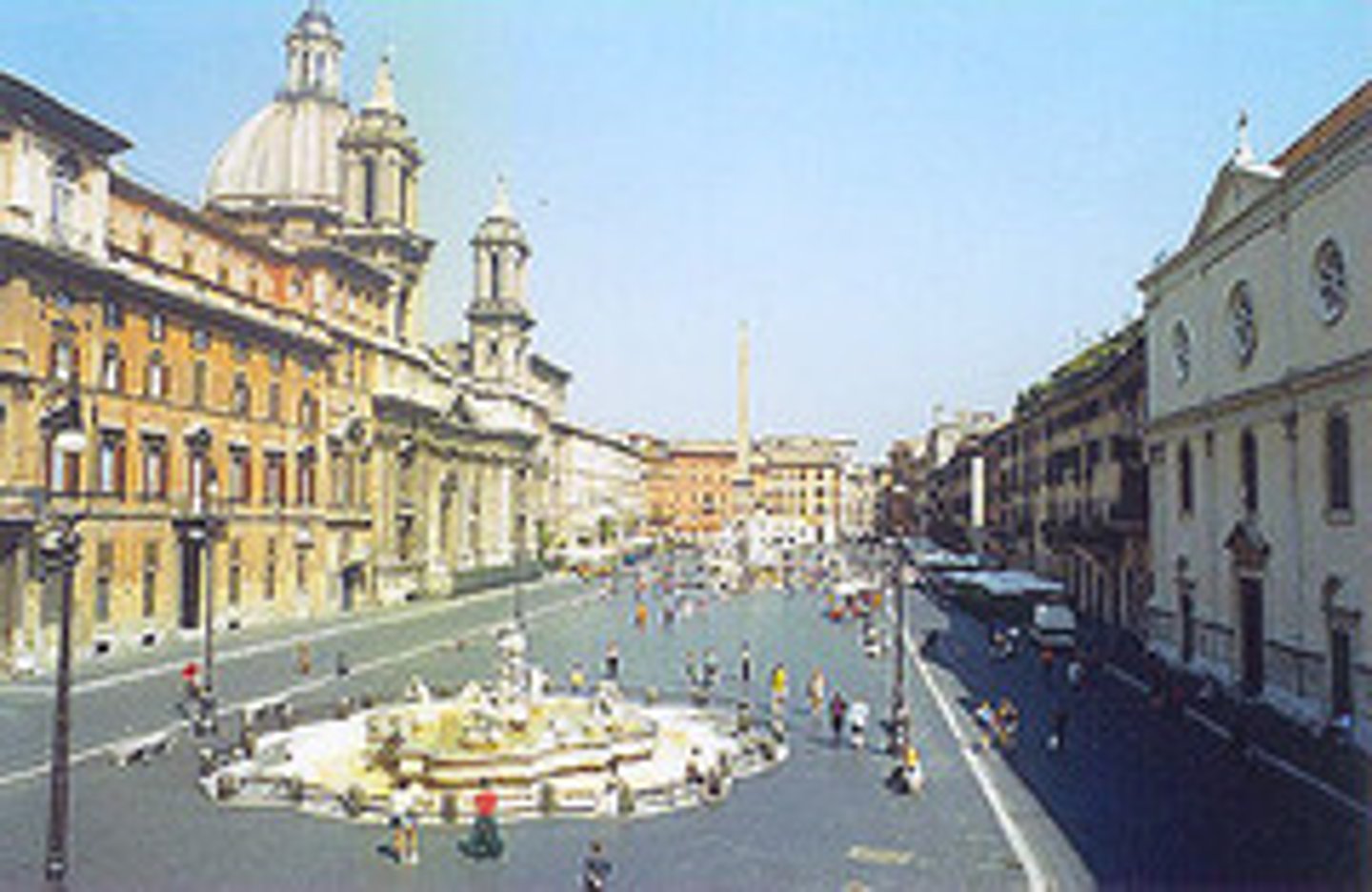
St Peter's rome
1624-1633
built by bernini
Baldacchino
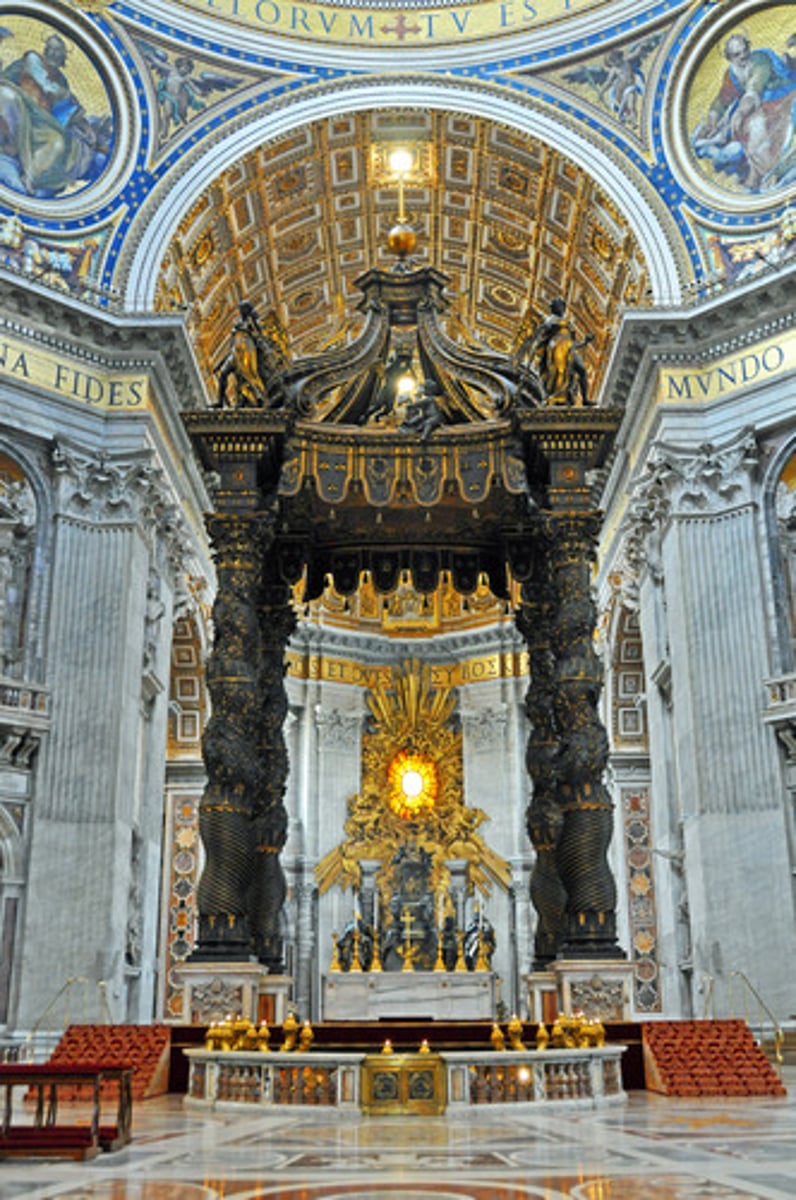
rebuilding the city of London after the fire of 1666 is an example of an early what
building code
picture of St Paul's Cathedral
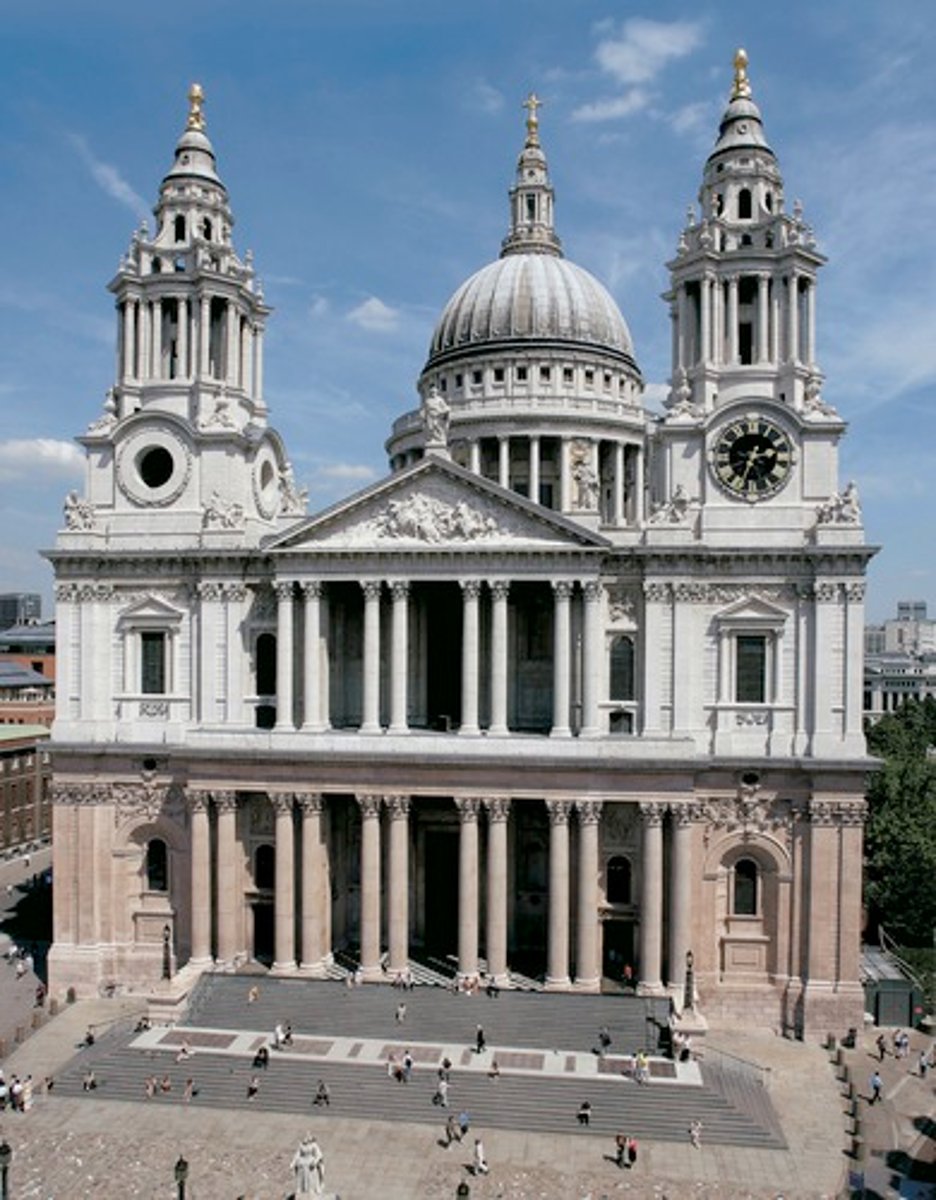
who redesigned st Pauls cathedral and over 50 other churches in london
St Christopher Wren
what were St Christopher Wren's churches known for
steeple
picture of St. Clemente Dane's
designed by St Christopher Wren
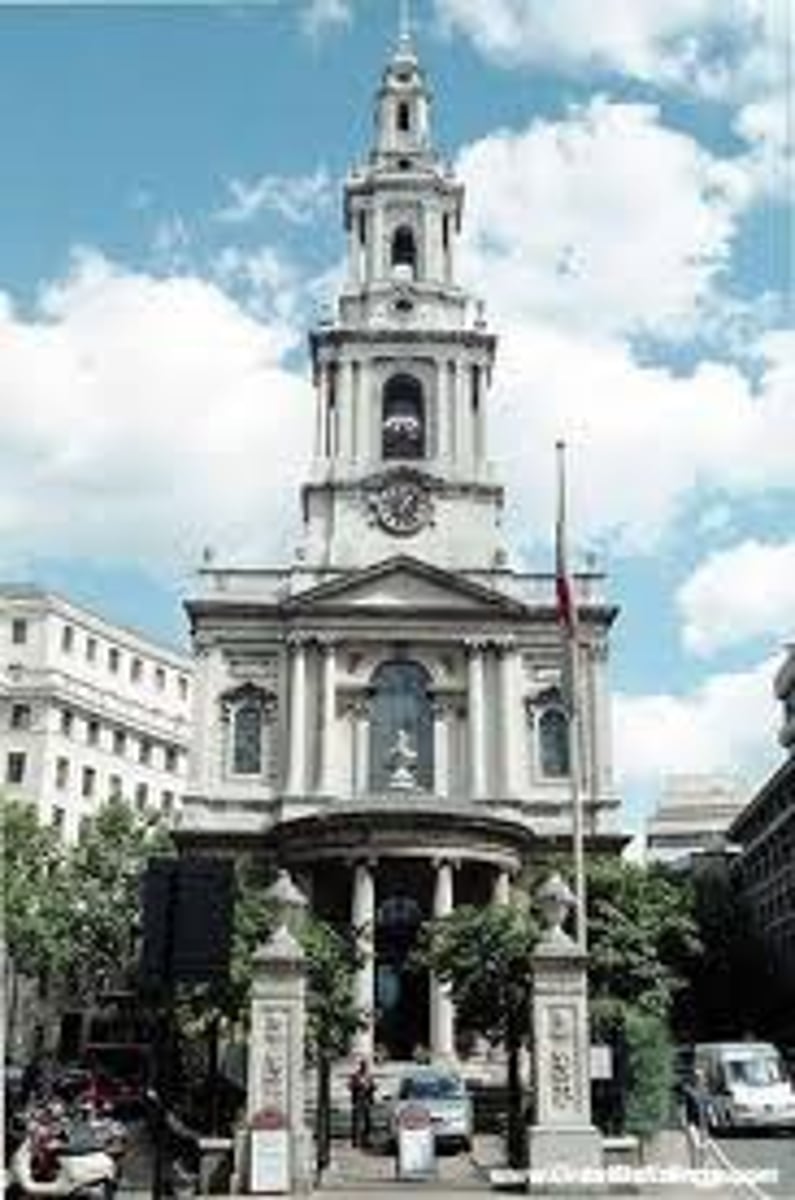
who built the Christ church in London
Nicholas Hawksmoore
Louis 14th hunting lodge
outside paris
Baroque
gardens include 1400 fountains using water pumped from the seine
Versailles
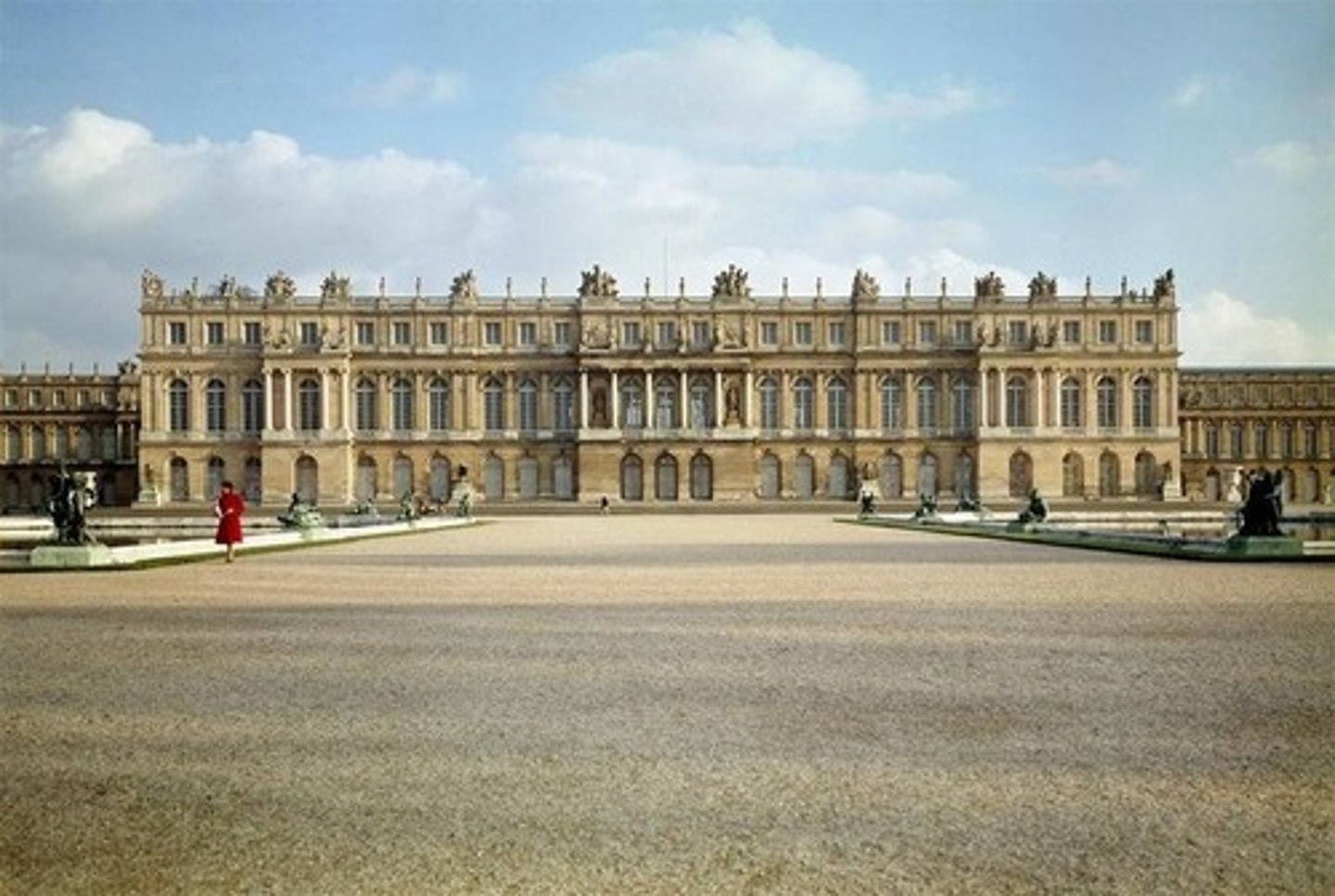
gardens that are geometrically organized
parterre
pathway lined with trees
allees
style of decorative art that evolved from baroque, originating in France in 1720 and distinguished by fanciful, curved spacial forms and elaborate profuse designs of shellwork and foliage intended for overall delicate effect
rococo
church in rural Bavaria
Zimmerman brothers design
structure disappears behind decoration
outside plain facades
intricate detail on interior
Die Wies
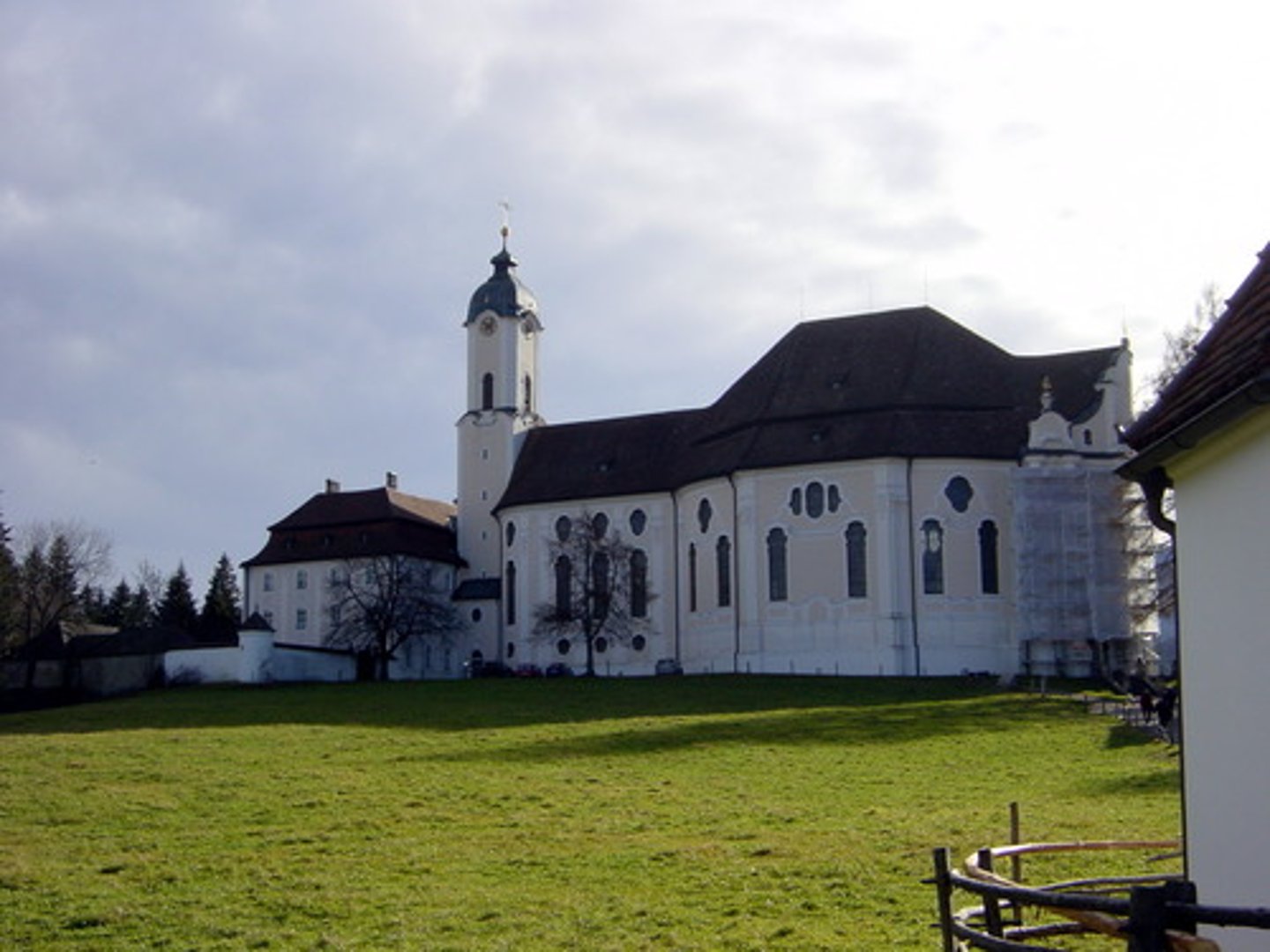
picture of Die Wies interior
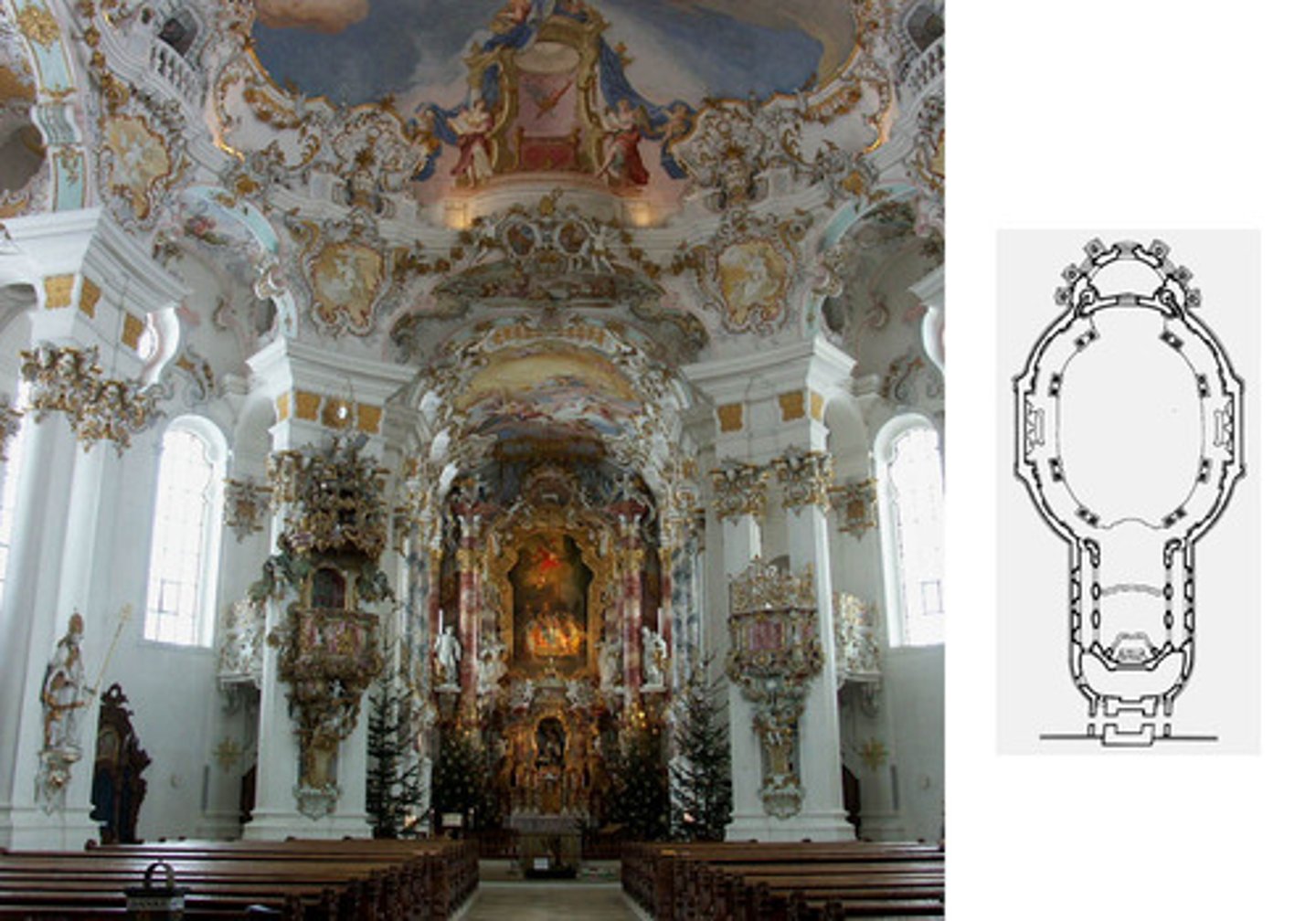
picture of Spanish steps
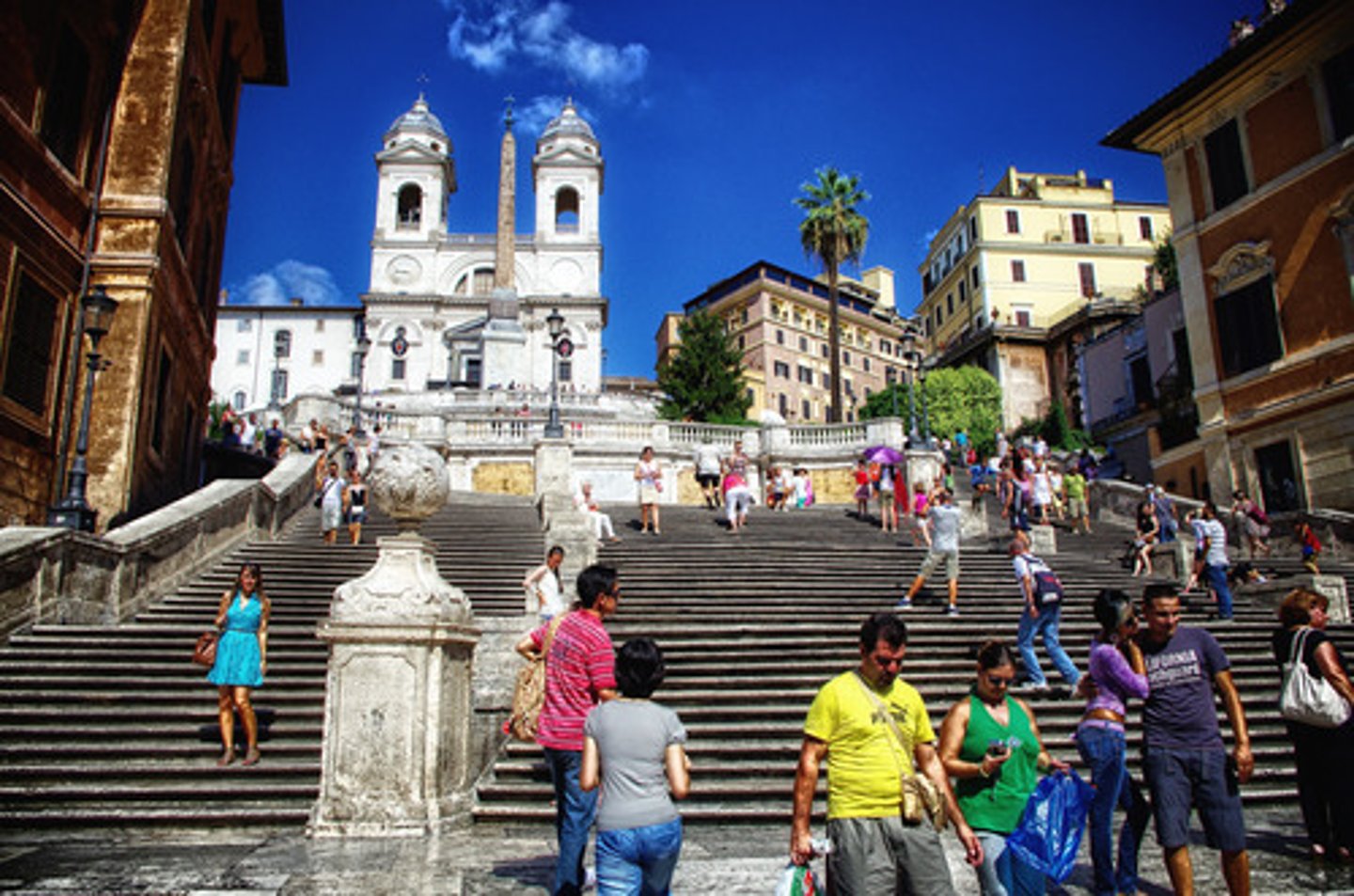
period where industrial revolution changed society dramatically
new building types
architects respond by borrowing styles from all eras and continents
anti baroque-go classical
motivated by archaeological digs
innovative architecture by engineers
lots of change-US and French revolutions, urban centers, science, middle class emerges, cast iron material
enlightenment
this was James Gibbs design that was copied in the US
St Martins in the field
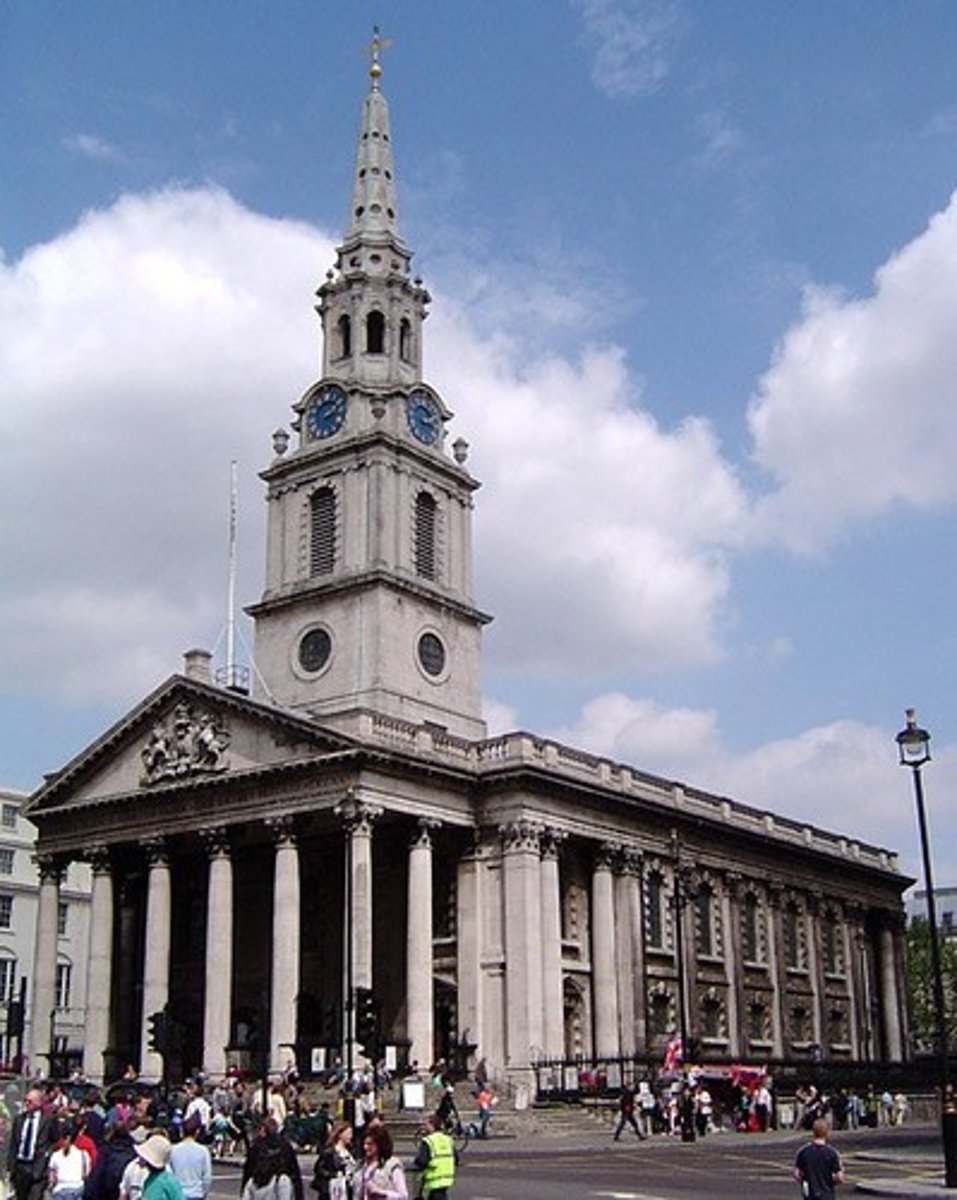
developed after American revolution
copied from British architect Robert adam
federal style
built the Baltimore cathedral and acknowledged as as 1st professional architect
Benjamin Latrobe
designed the plan of Washington DC
Pierre Charles L'enfant
2 major writers of greek revival style
Minard Lefever
Asher benjamin
Thomas Jefferson designed the Virginia state capital after this
maison Caree
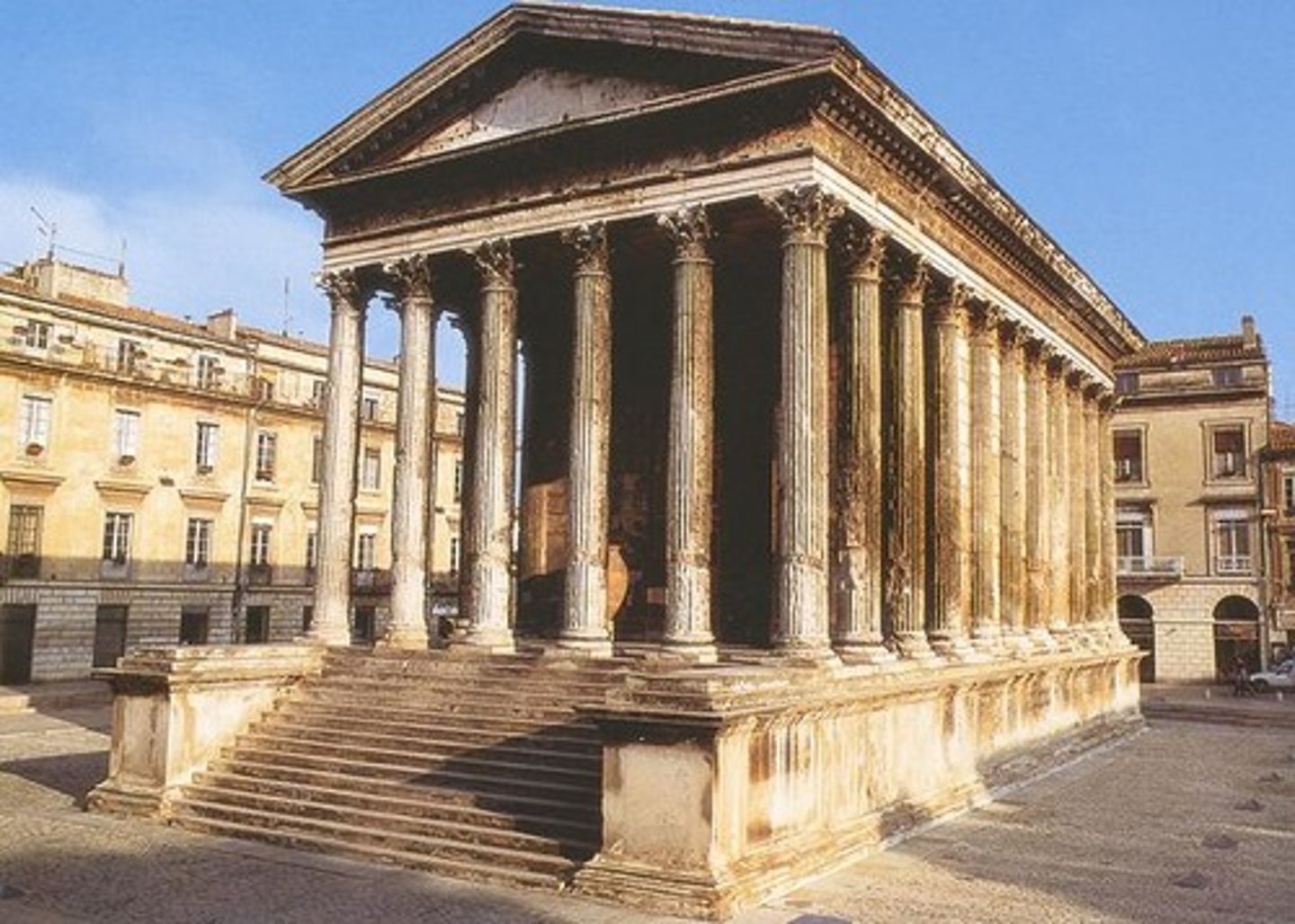
Thomas Jeffersons home
Monticello
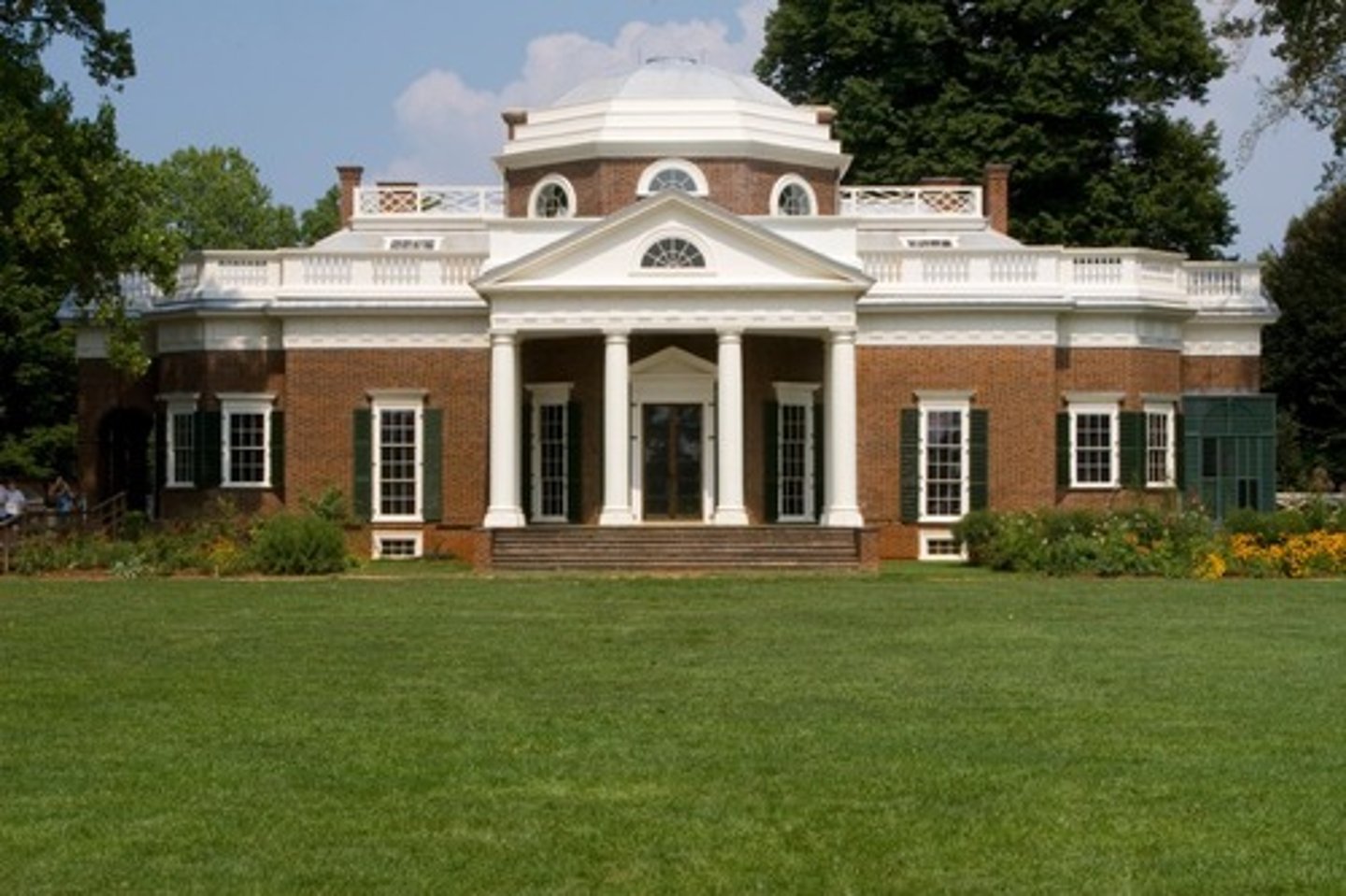
1st architecture school
located in paris
Ecole des beaux arts
monument to Issac newton
Etienne Louis Boullee
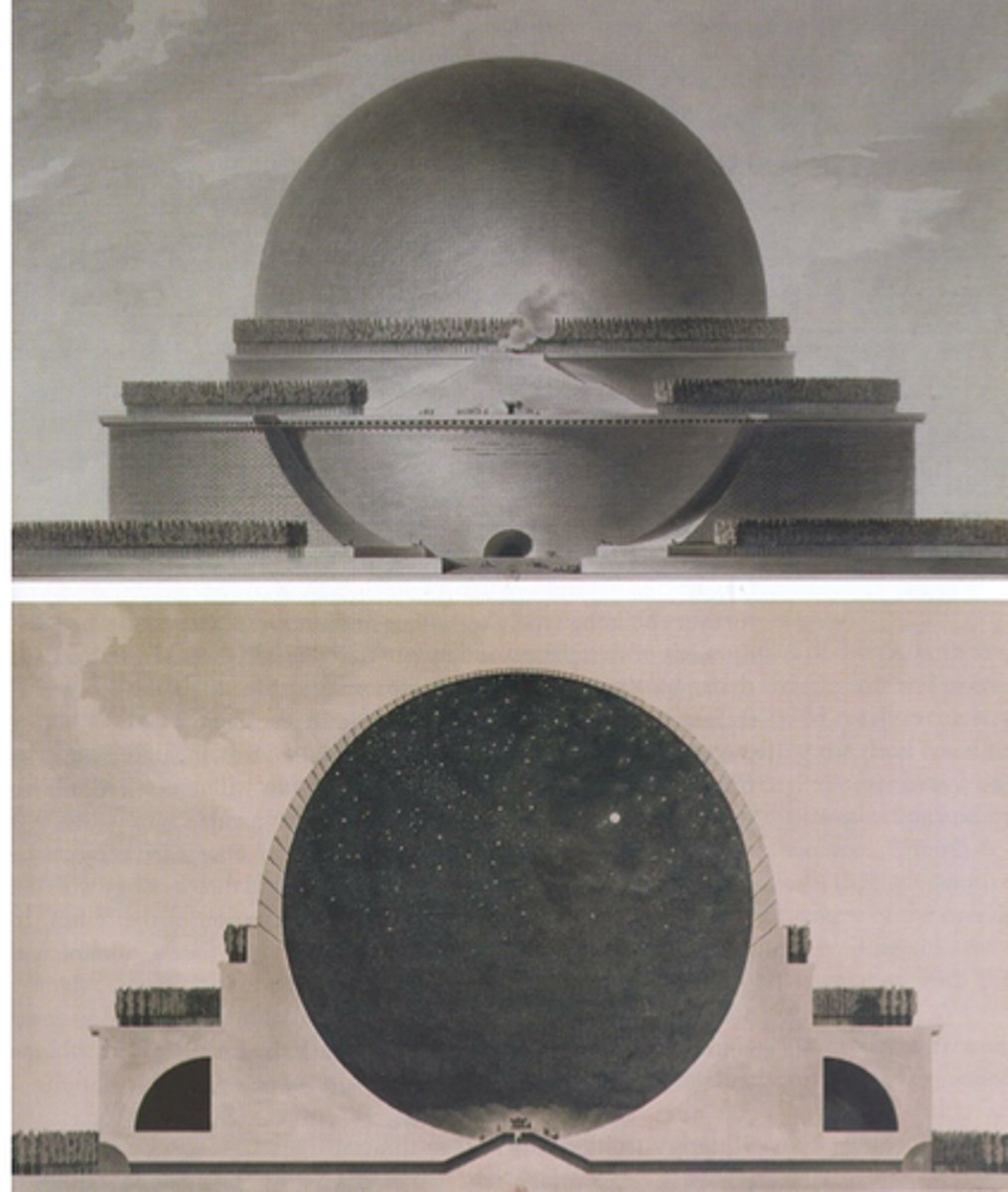
leading proponent of gothic revival in france
Viollet le Duc
picture of strawberry hill house
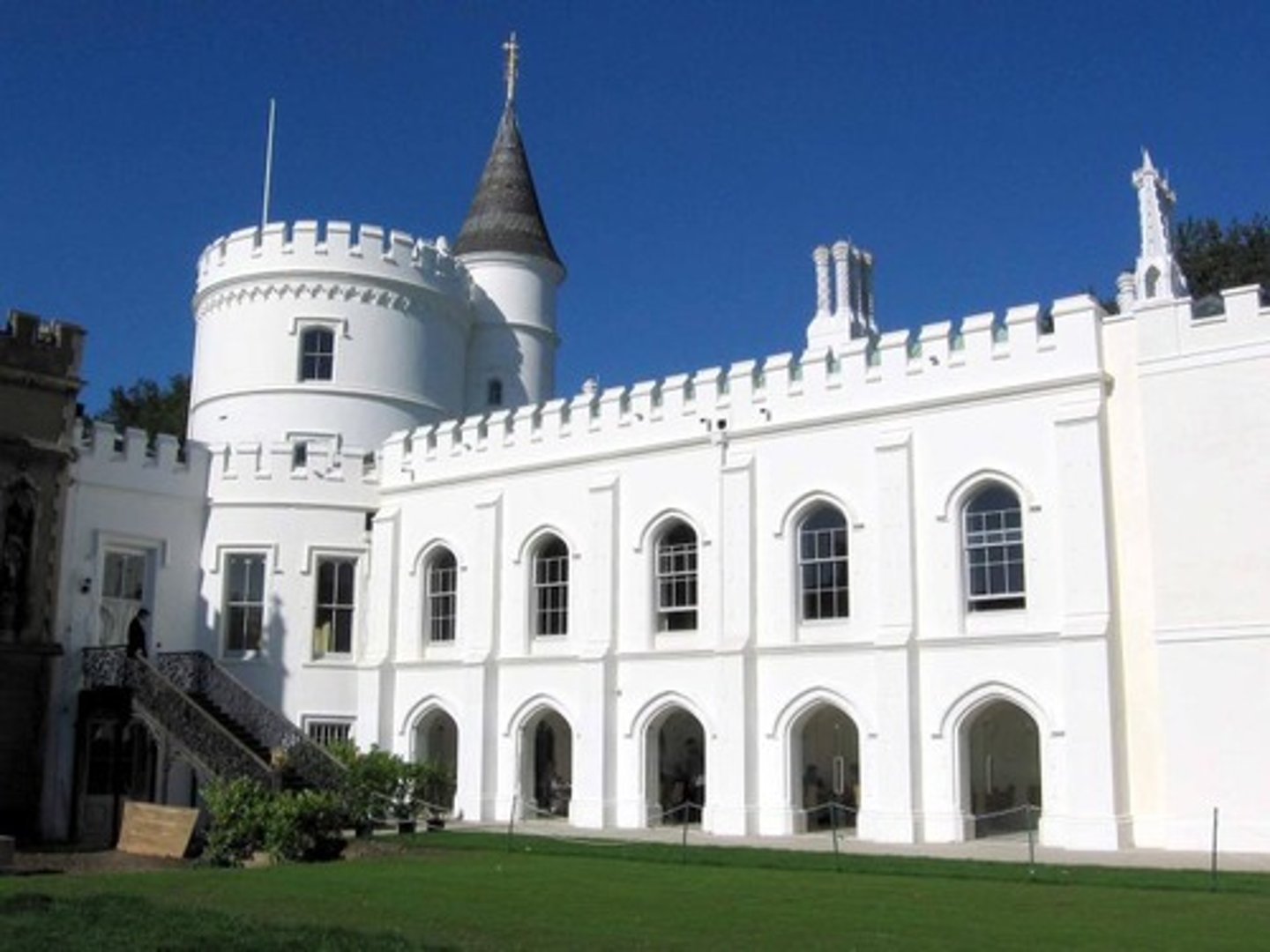
style of architecture that engages pure form and intellect
emphasizes individual in isolation
architecture for wealthy
individual isolated buildings
renaissance architecture
designed the trinity church in Boston and it was his most famous building
Henry Hobson Richardson
who changed the role of architects by pushing limits of metal/glass and designing stone and efficient structures
engineers
wanting to establish identity through architecture using historical references
nationalism
when was the time where cities were overcrowded due to infrastructure problems, new building materials emerged, debate of historical styles vs new forms, time of great industrial and global change, and made the largest buildings since the romans
used designs that had never been seen before
19th century
designed by Joseph Paxton for the worlds fair in london
no decorations/historical references
greenhouse
architects and critics hated it
made of modular parts that could be assembled and dissembled
standardization from industrial manufacturing process
crystal palace
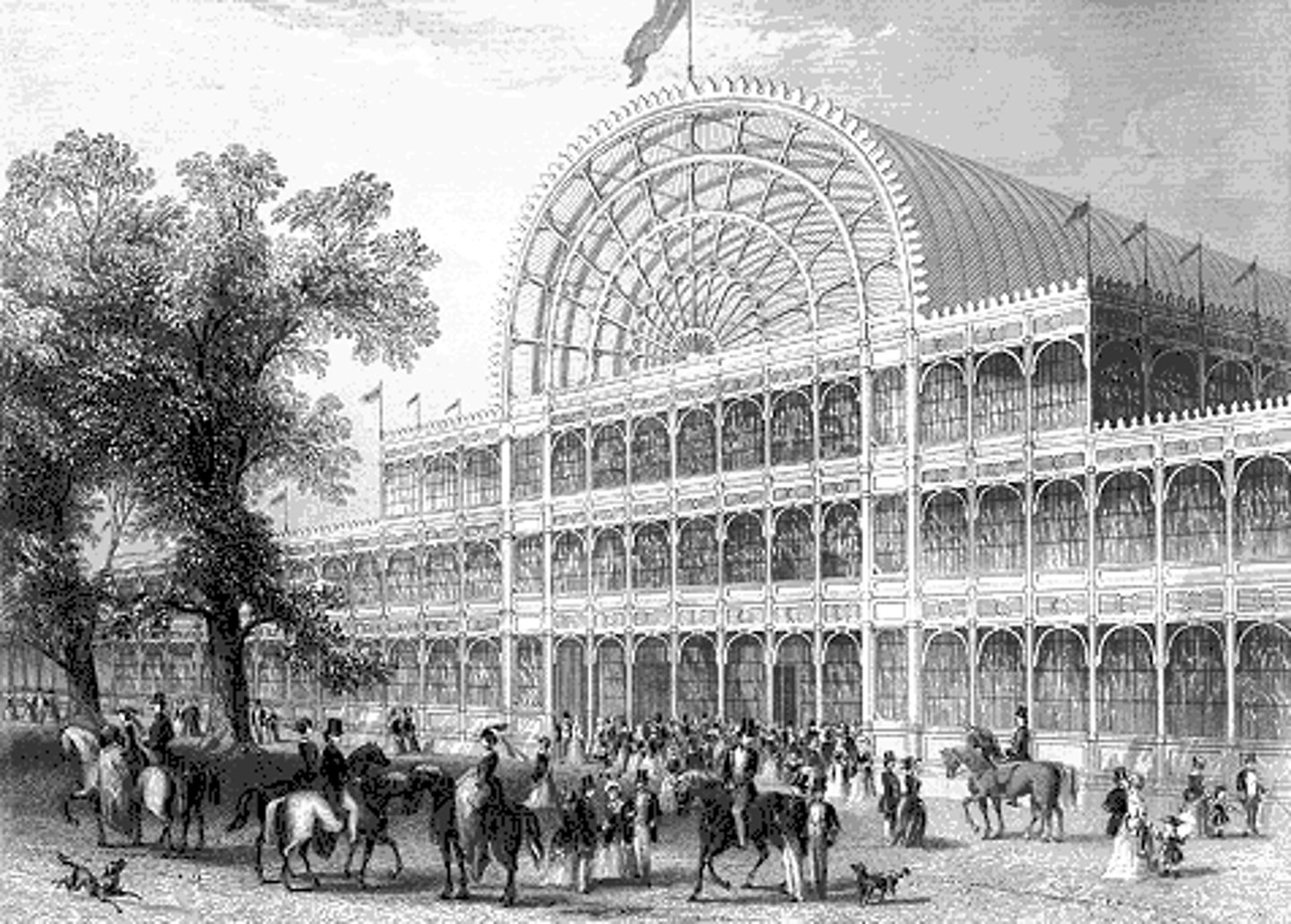
designed by Henri Labrouste in Paris
symbolic train station
represent readers journey into knowledge
cast iron shaped into columns and arches to support vaults and domes
Bibliothèque Ste. Genevieve
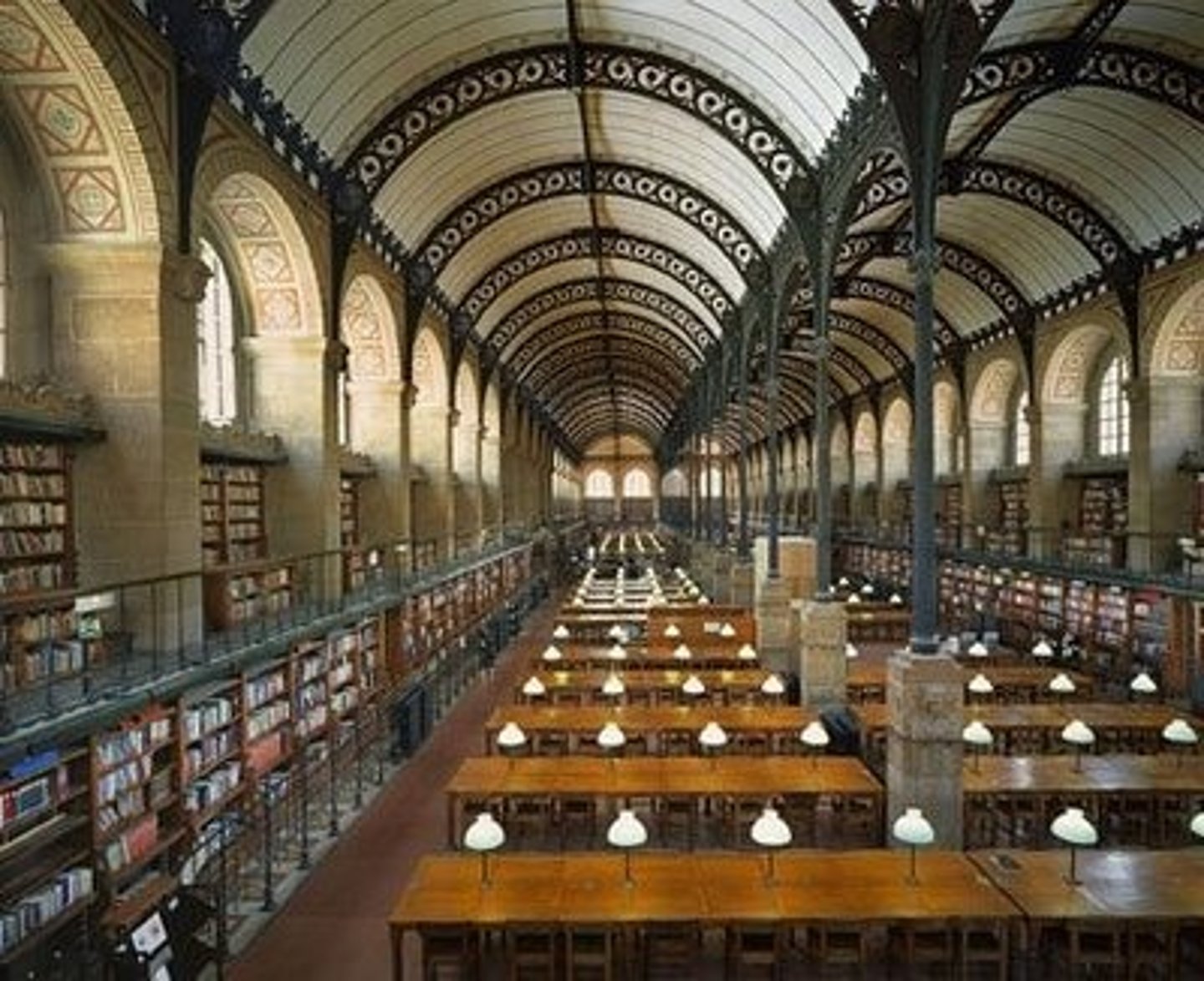
suspension bridge with tension
Brooklyn Bridge
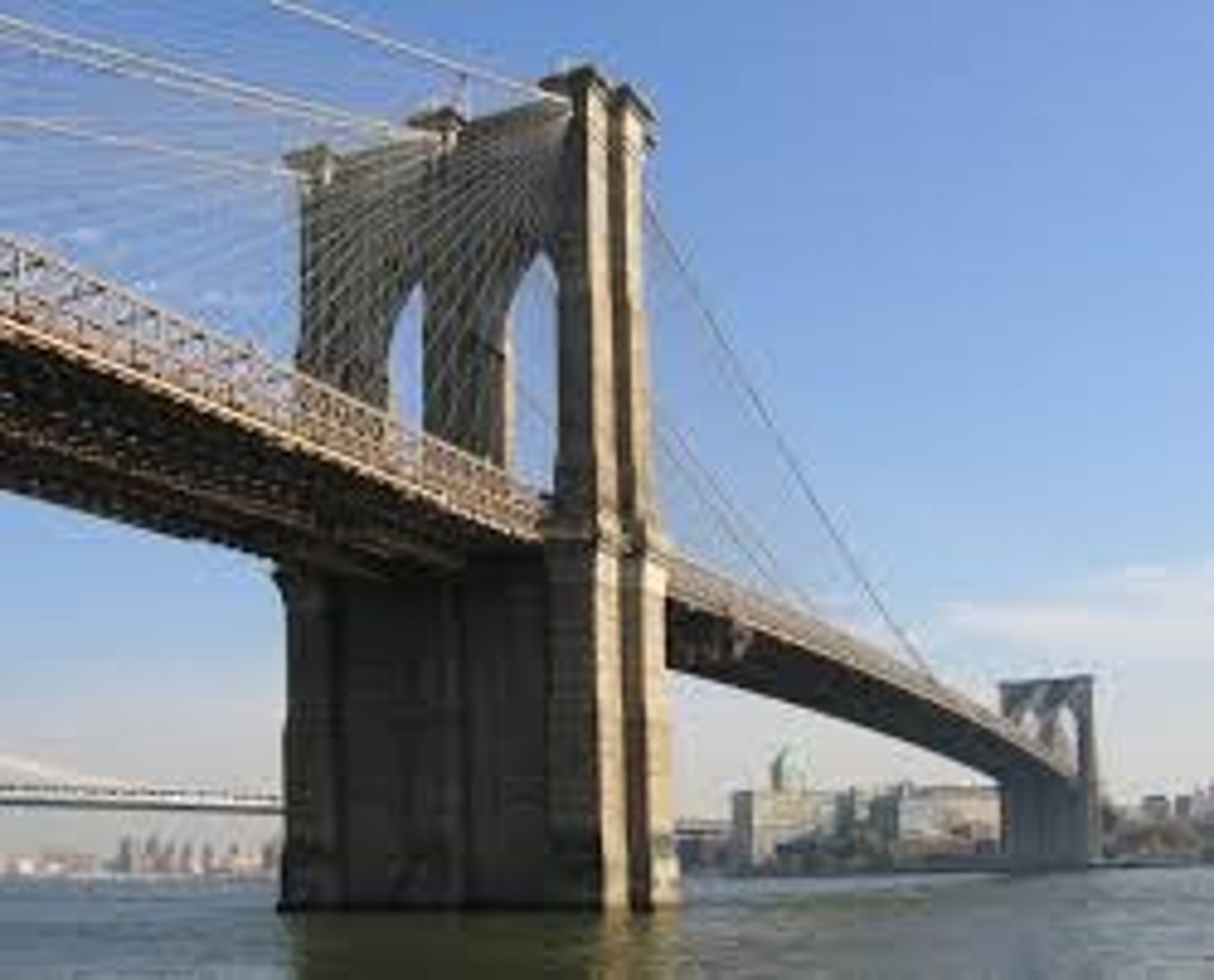
designed the Eiffel Tower
Paris
Iron construction
Gustav Eiffel
Forefront of american architecture
fire in 1871
known for skyscrapers
Chicago
celebrated and expressed verticality in high rises
used light curtain wall material
express 3 zones on facade
designed Chicago Opera House
Louis Sullivan
designed the Rookery
Adler and Root
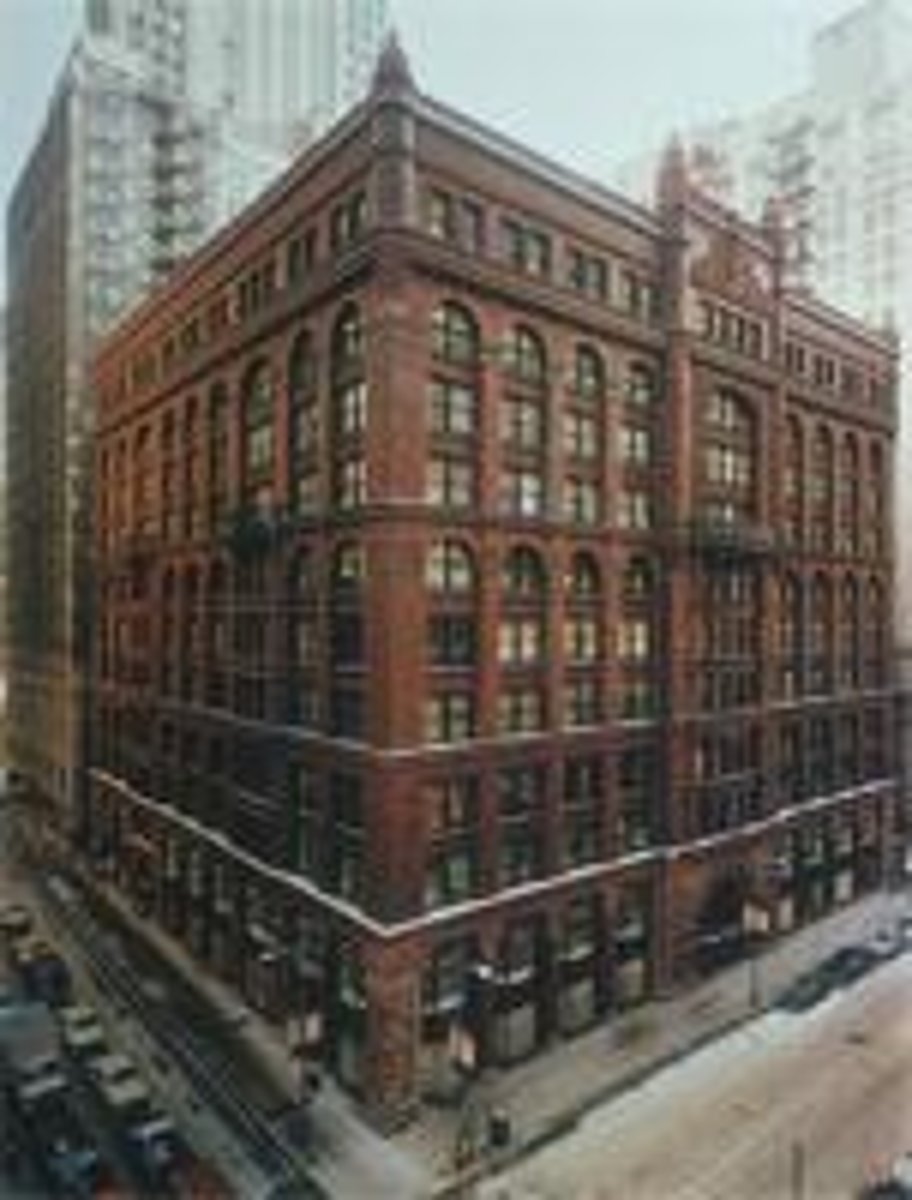
Father of Landscape Architecture
designed Central Park and Biltmore gardens
Columbia Exposition of 1893
Fredrick Law Olmsted
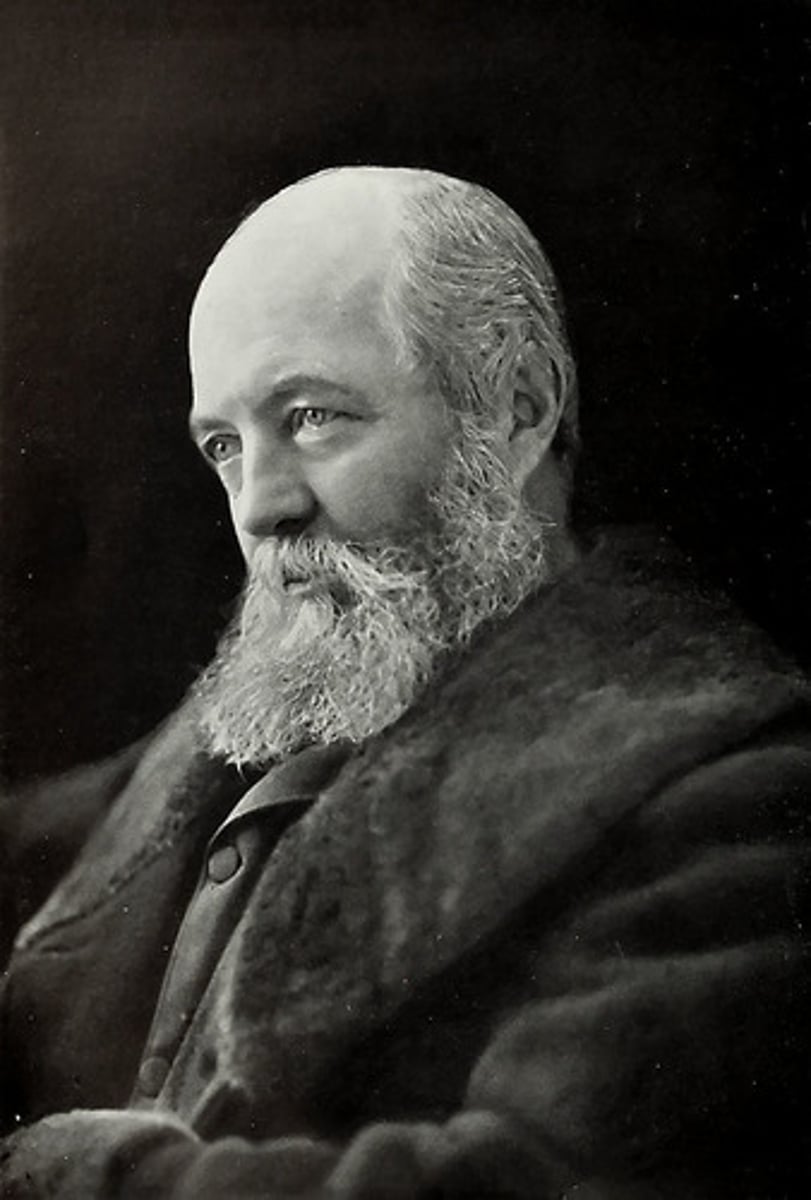
American architect from chicago
most significant architect of 20th century
stylistic developments include:
arts and crafts derived styles
modern horizontally interwoven spaces
expressionistic mature style
frank Lloyd wright
frank Lloyd wrights most famous work
Robie House
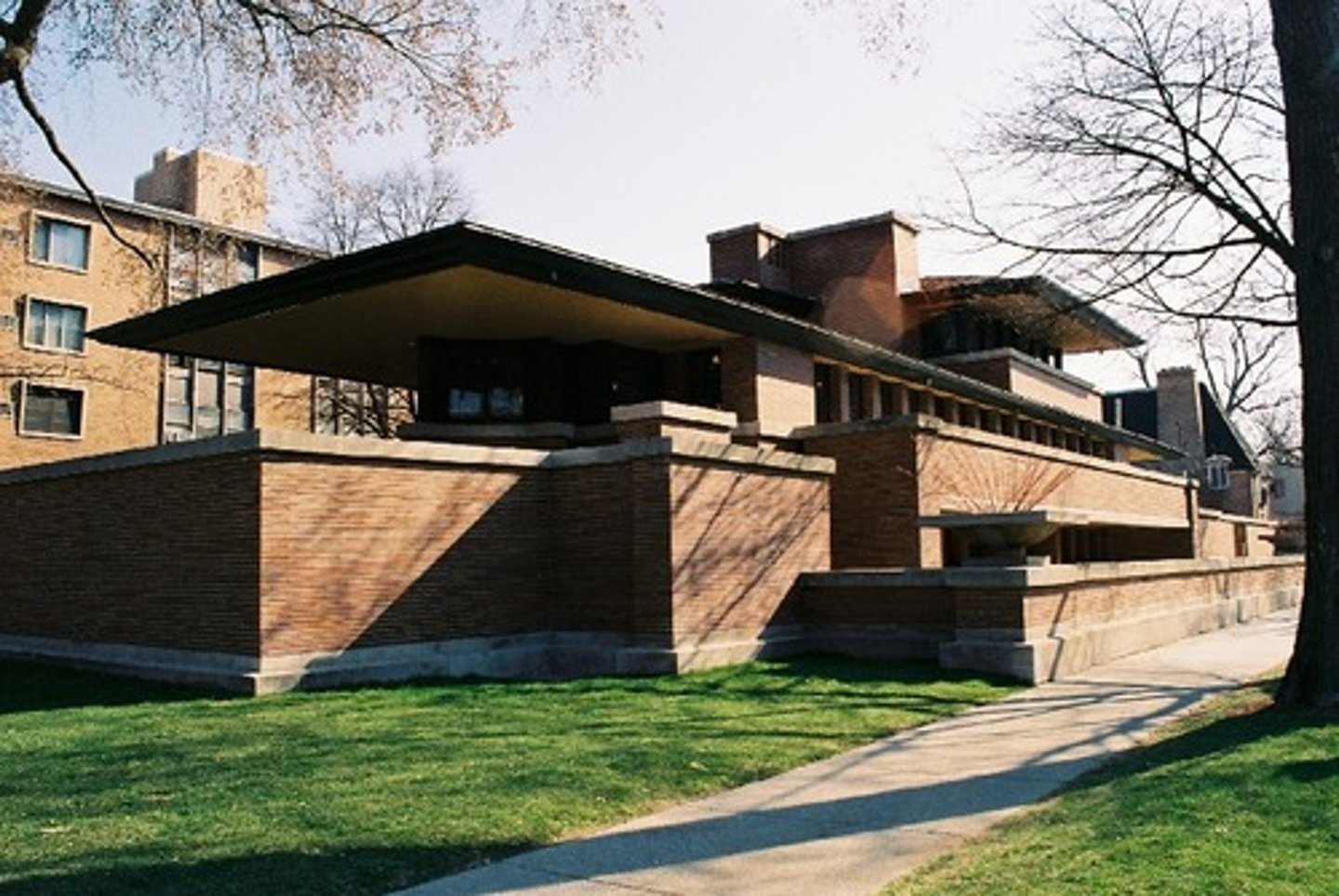
Unity Temple - Frank Lloyd Wright
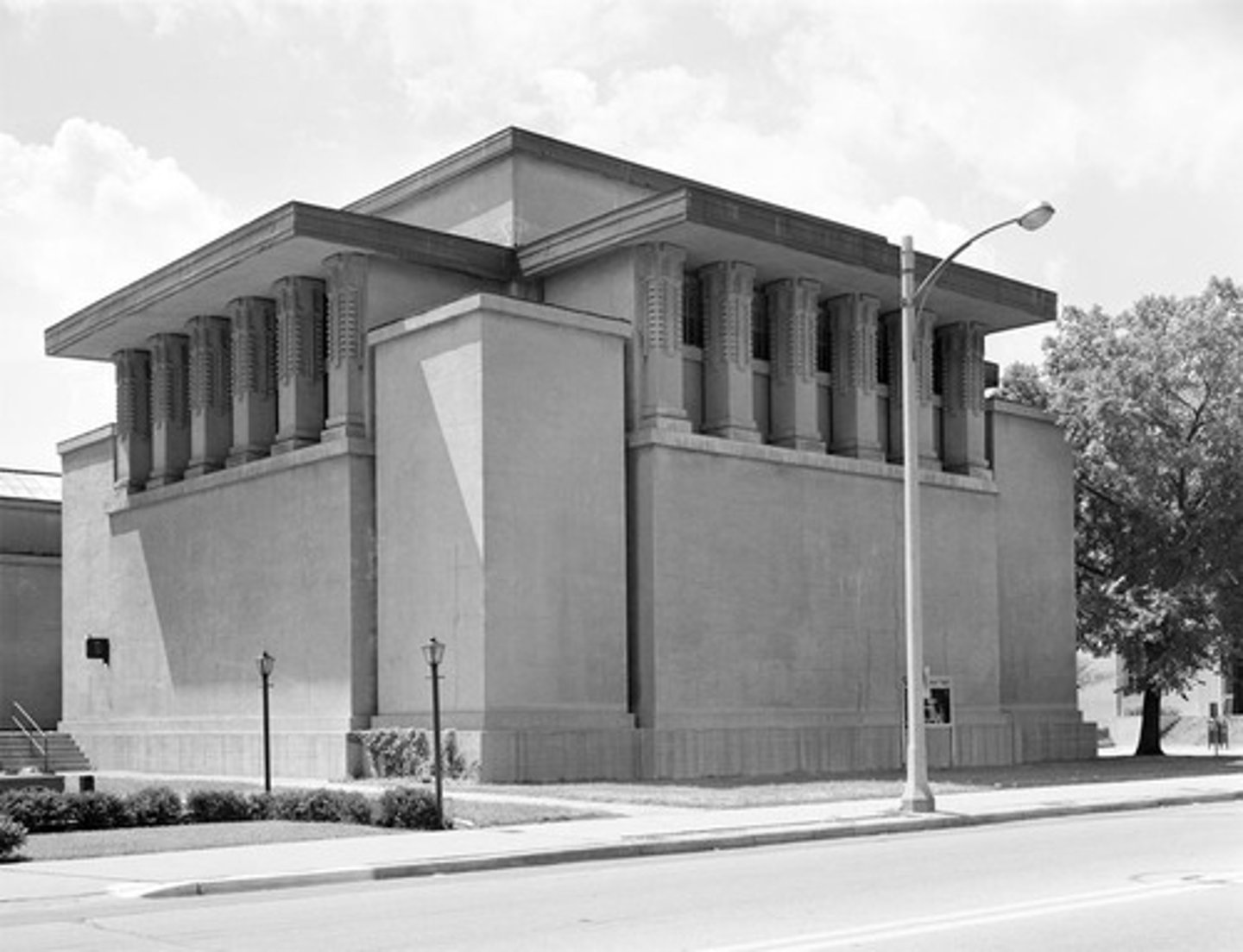
built the AEG turbine factory in berlin
Peter Behrens
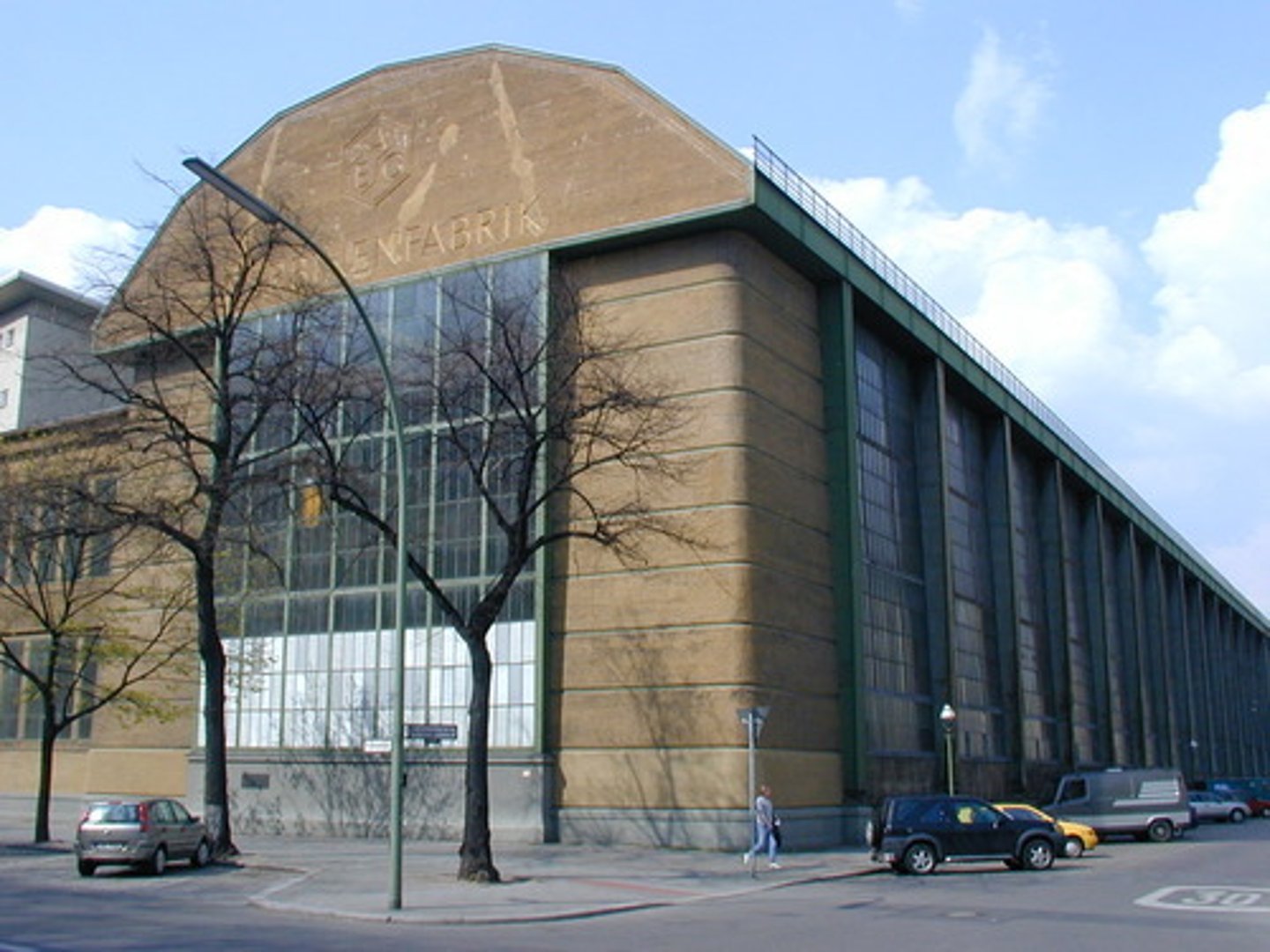
built fagus factory in Germany using international style
Walter Gropius
designing buildings for the world
abstract style that could fit anywhere
international style
school in Germany founded in 1919 by Walter gropius
huge influence on modern architecture
art, design and construction are united
promoted "form follows function"
about the collective
political purpose-housing for the masses
Bauhaus
who designed the Barcelona pavilion
Van der Rohe
French architect
one of the most significant architects of the modern movement and 20th century
designed maison dom ino
Le Corbusier
complete reduction of house to elemental form
idea of a universal house
GRID
Maison Dom Ino
"God is in the details"
van der rohe
Seagram's Building
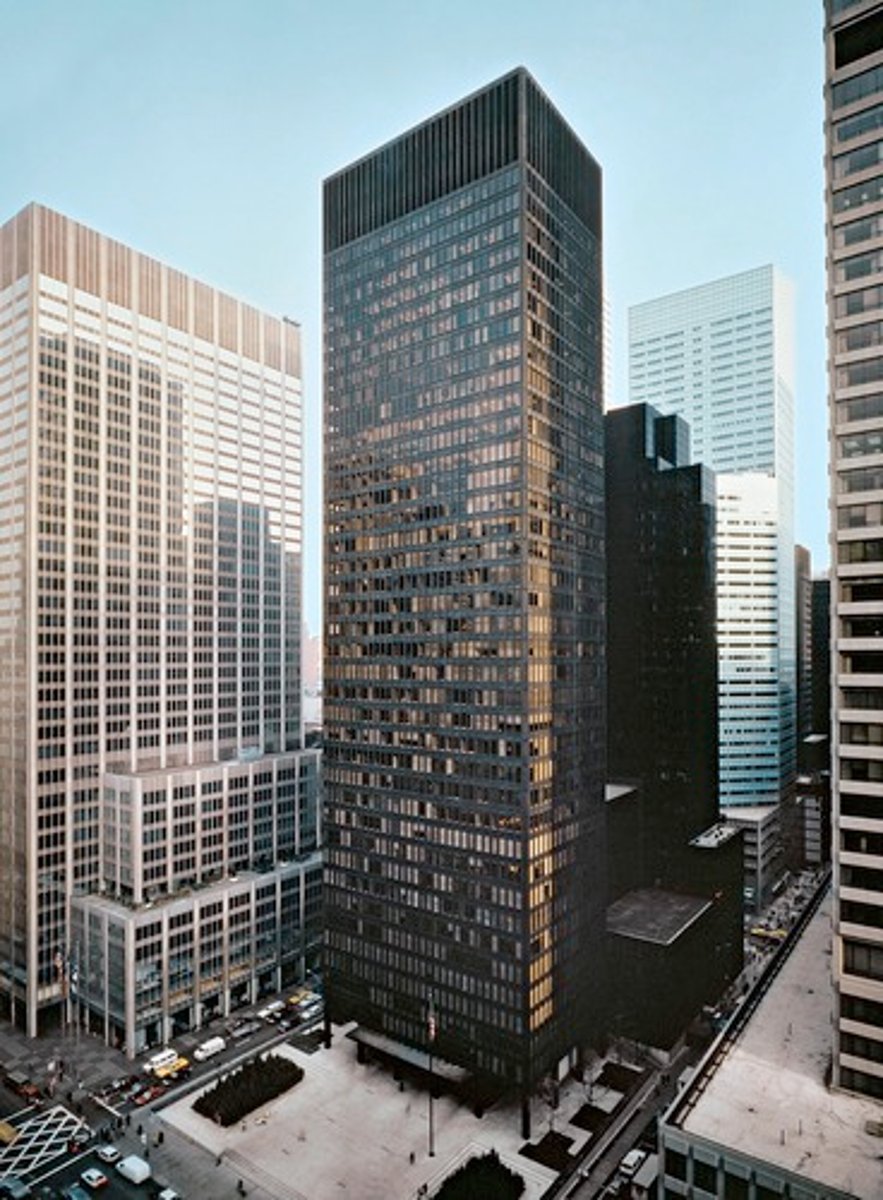
designed by William van alen
chrysler building
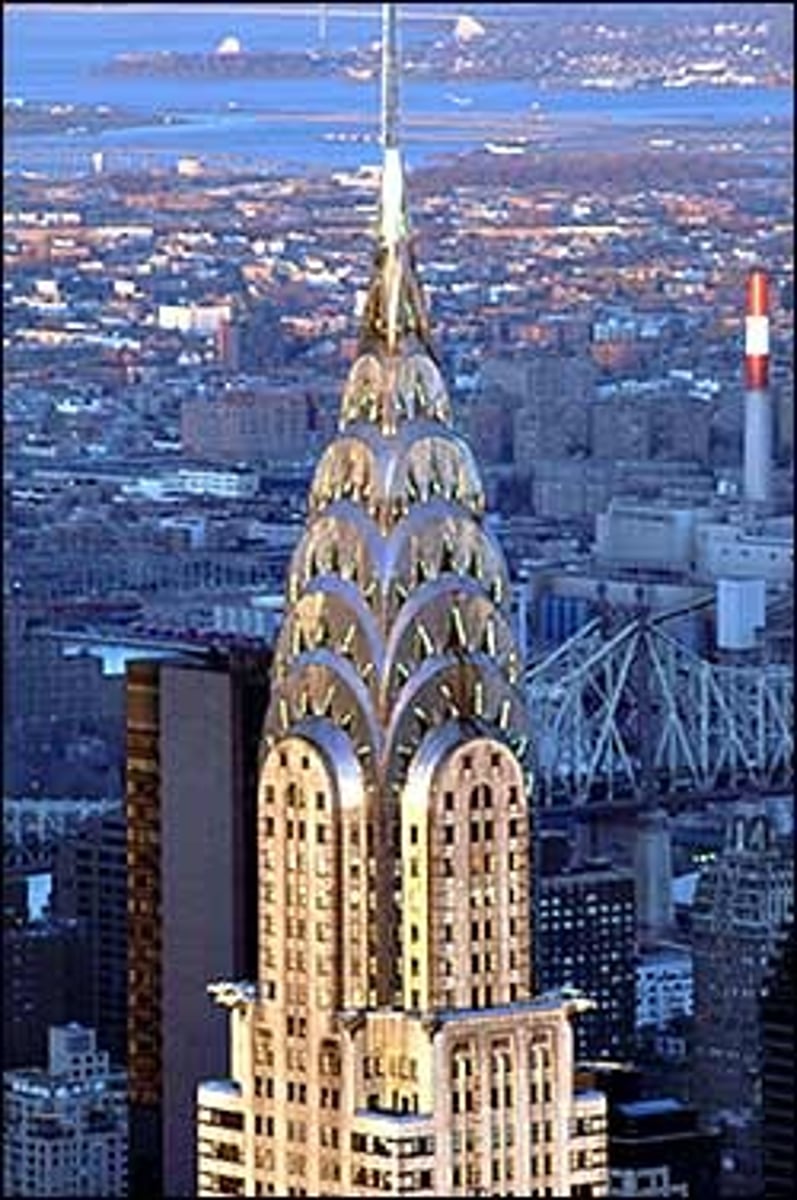
designed by frank Lloyd wright
falling water
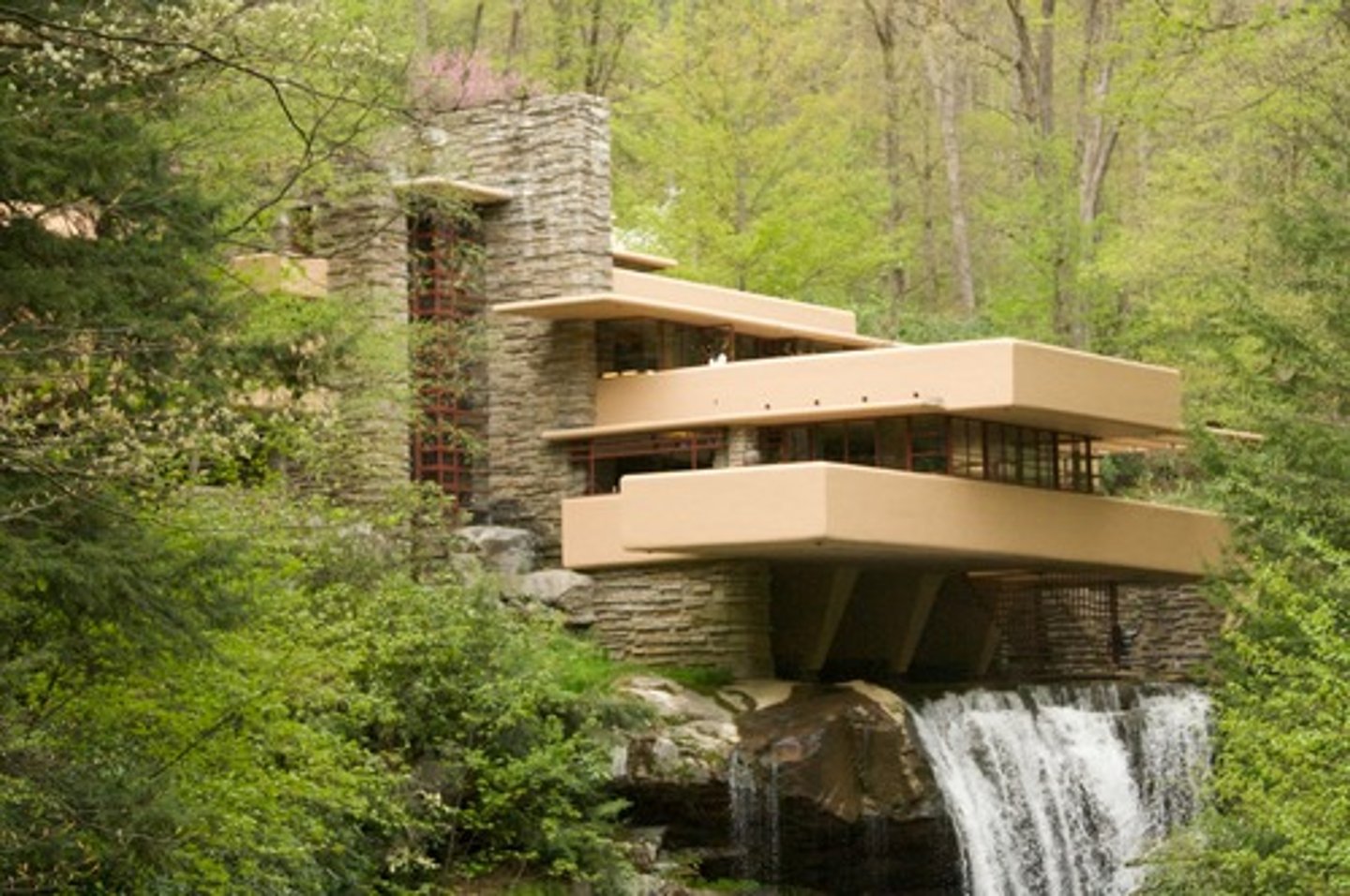
Guggenheim Museum
Frank Lloyd Wright
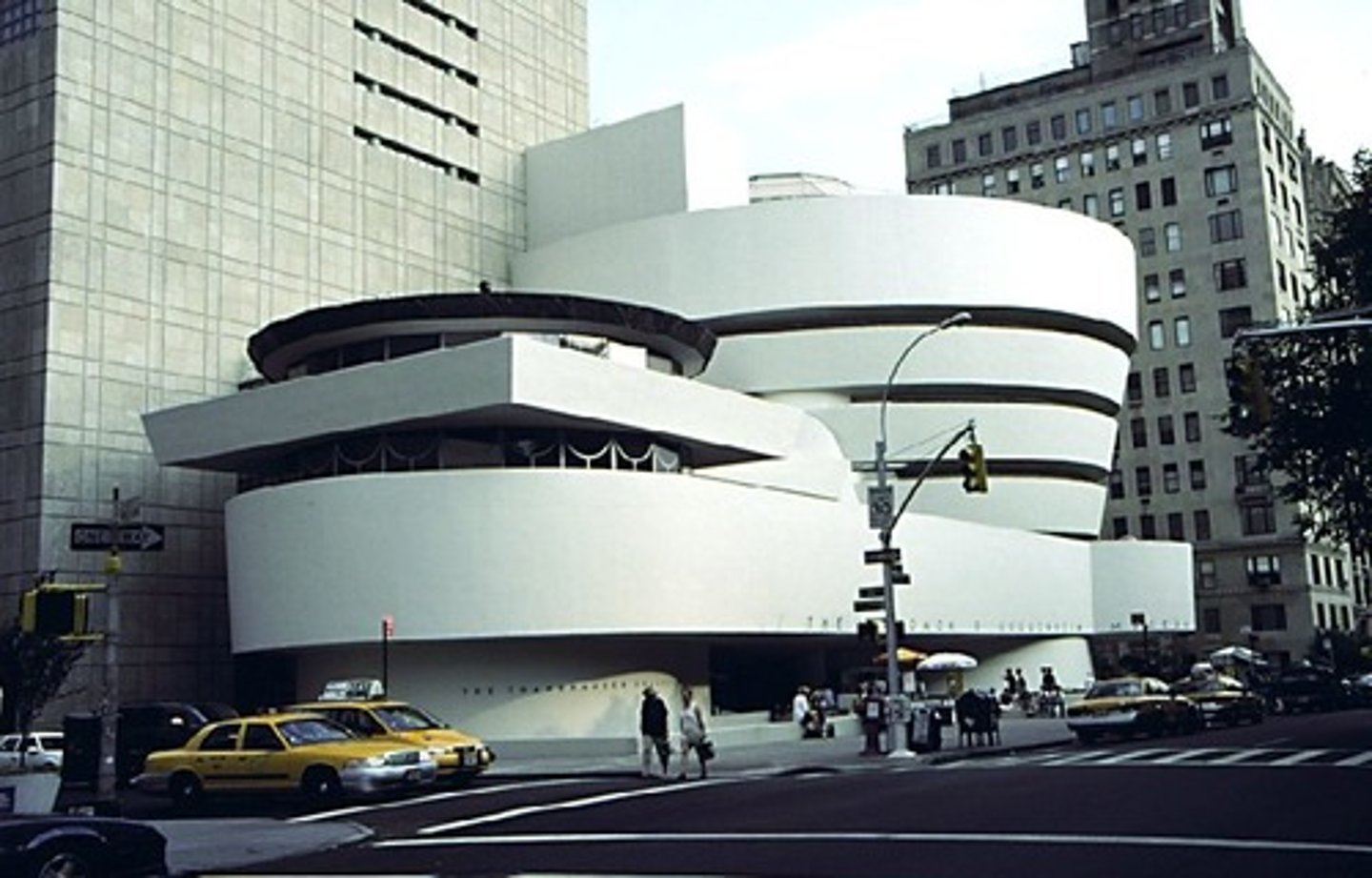
built by Antoni Gaudi
church of sagrada family
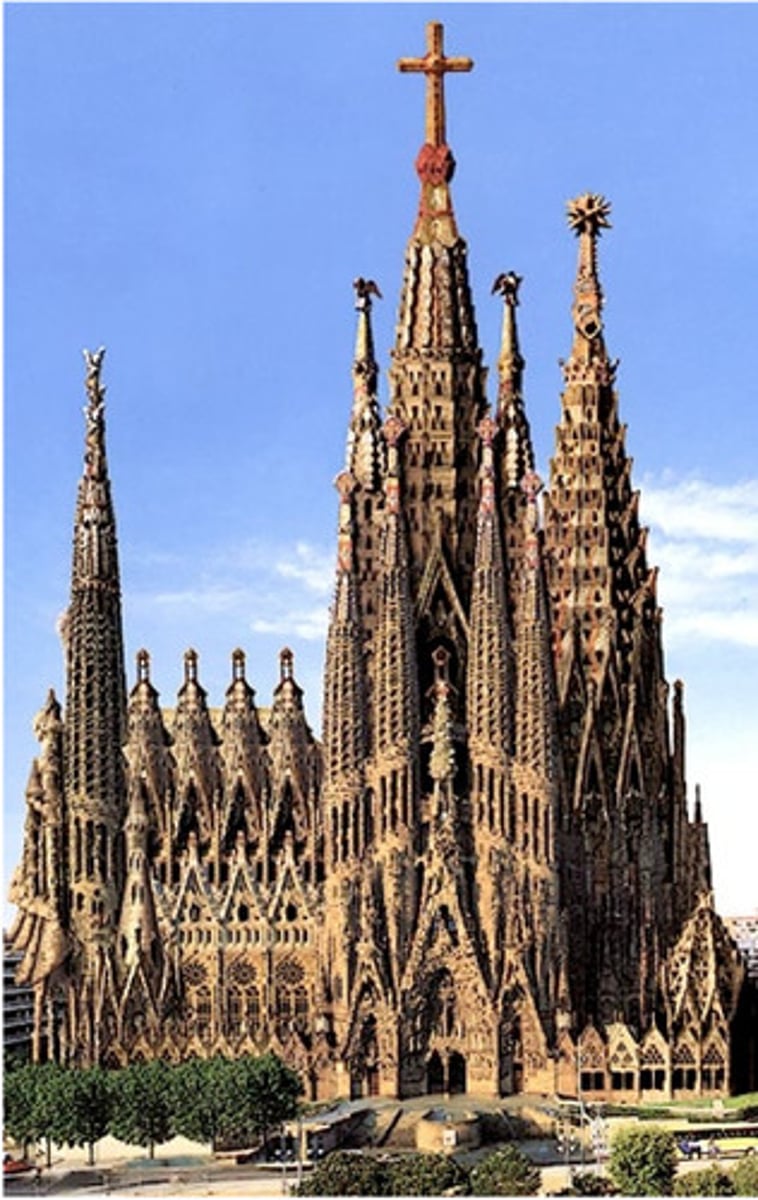
Pompidou Center
Renzo Piano and Richard Rogers
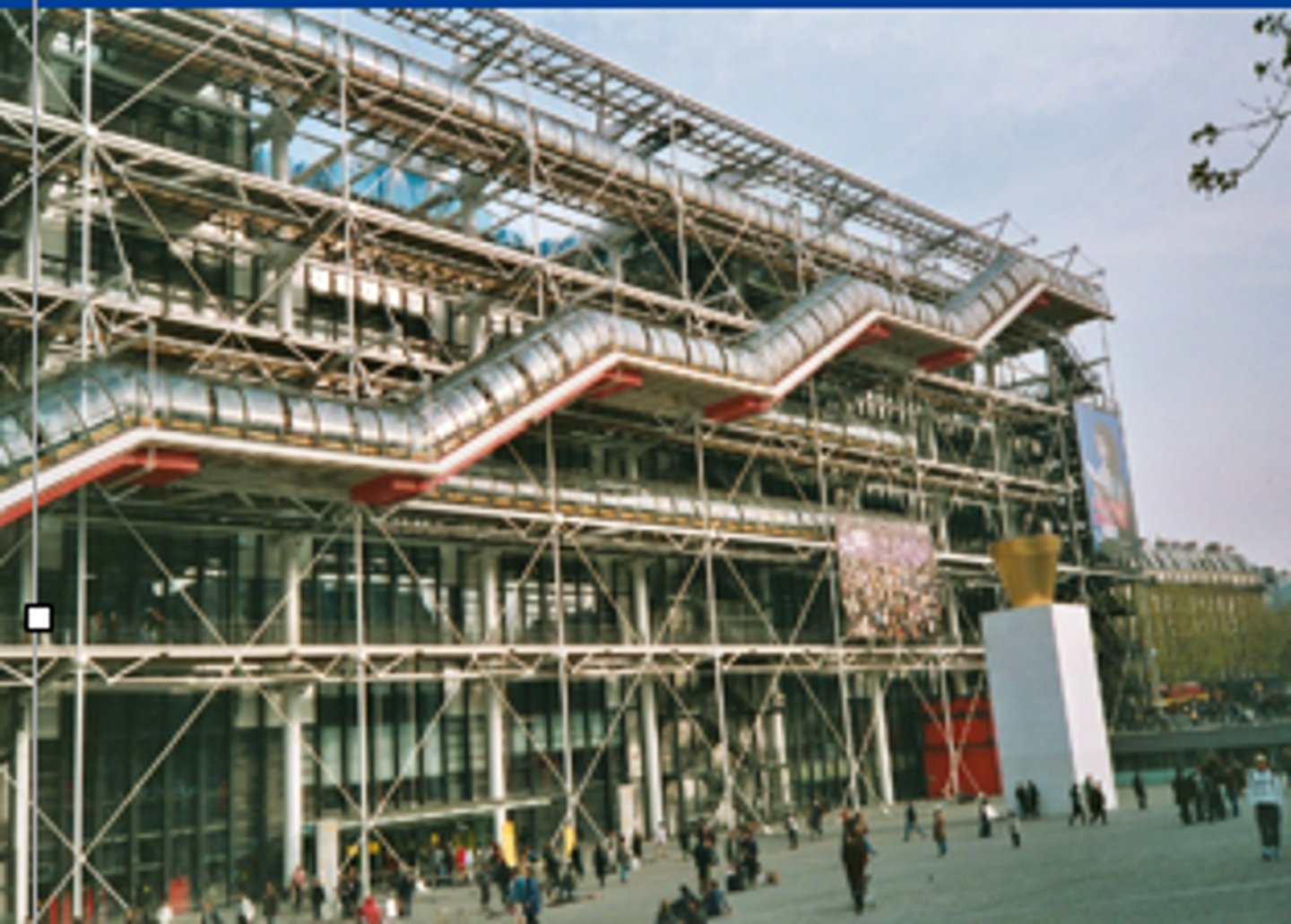
TWA Terminal
st louis gateway arch
Eero Saarinen
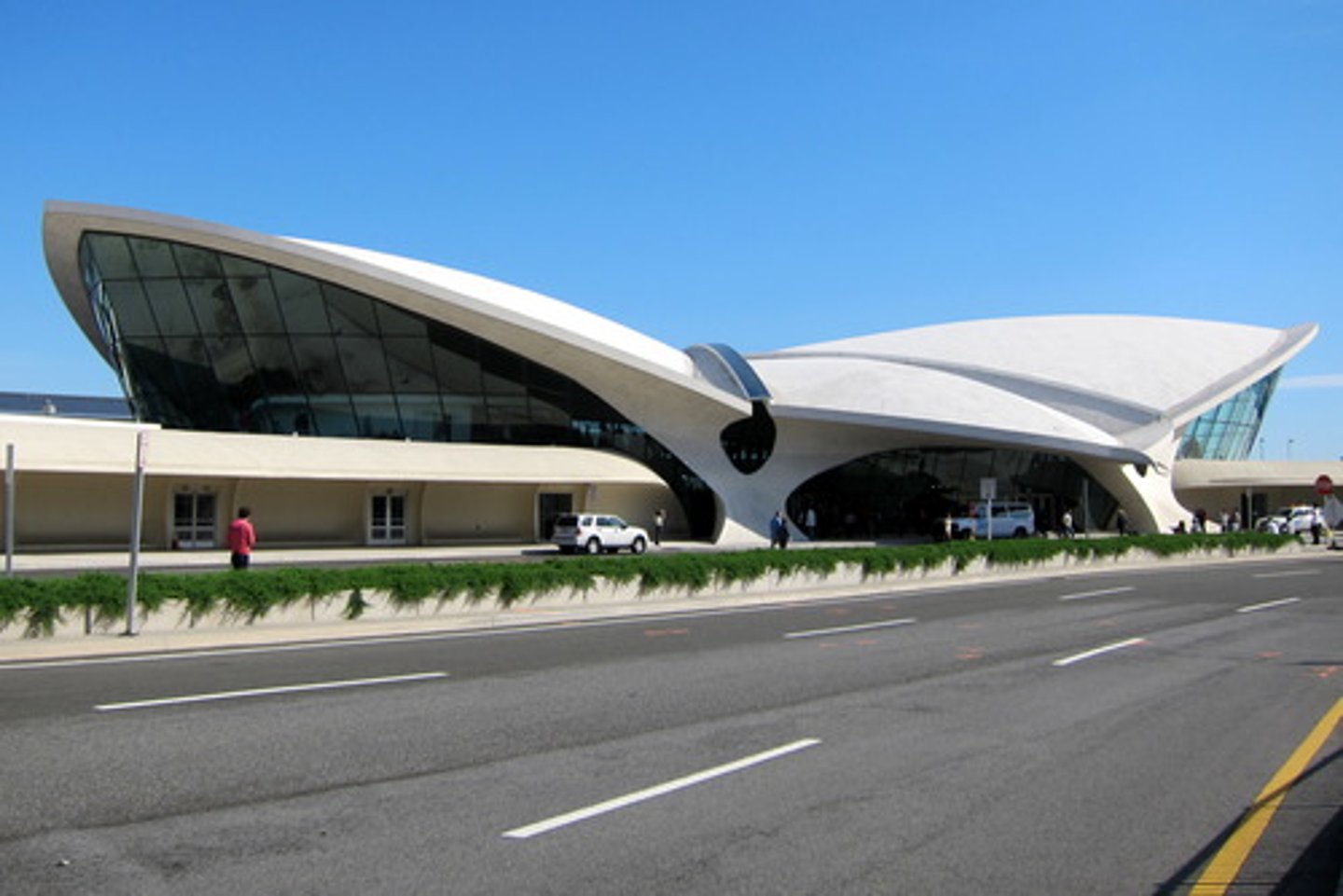
Phillips Exeter Academy Library
Louis Kahn
